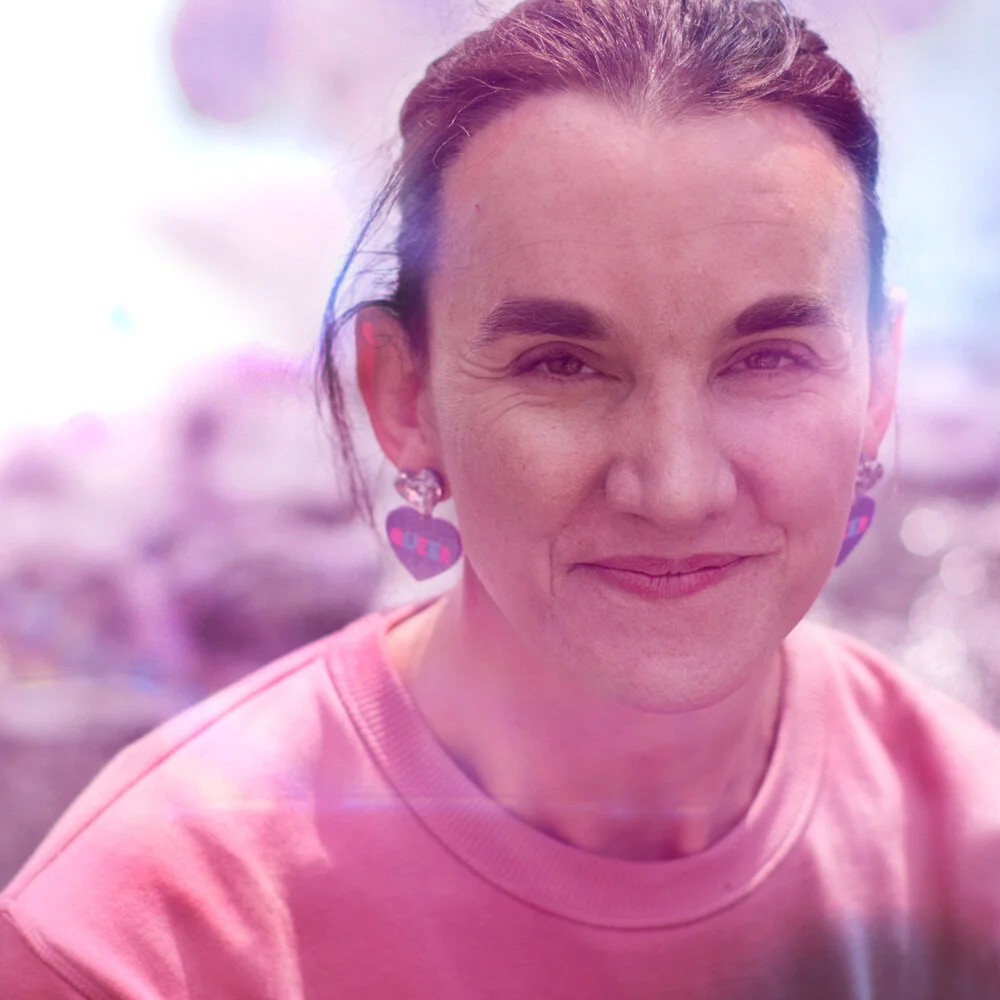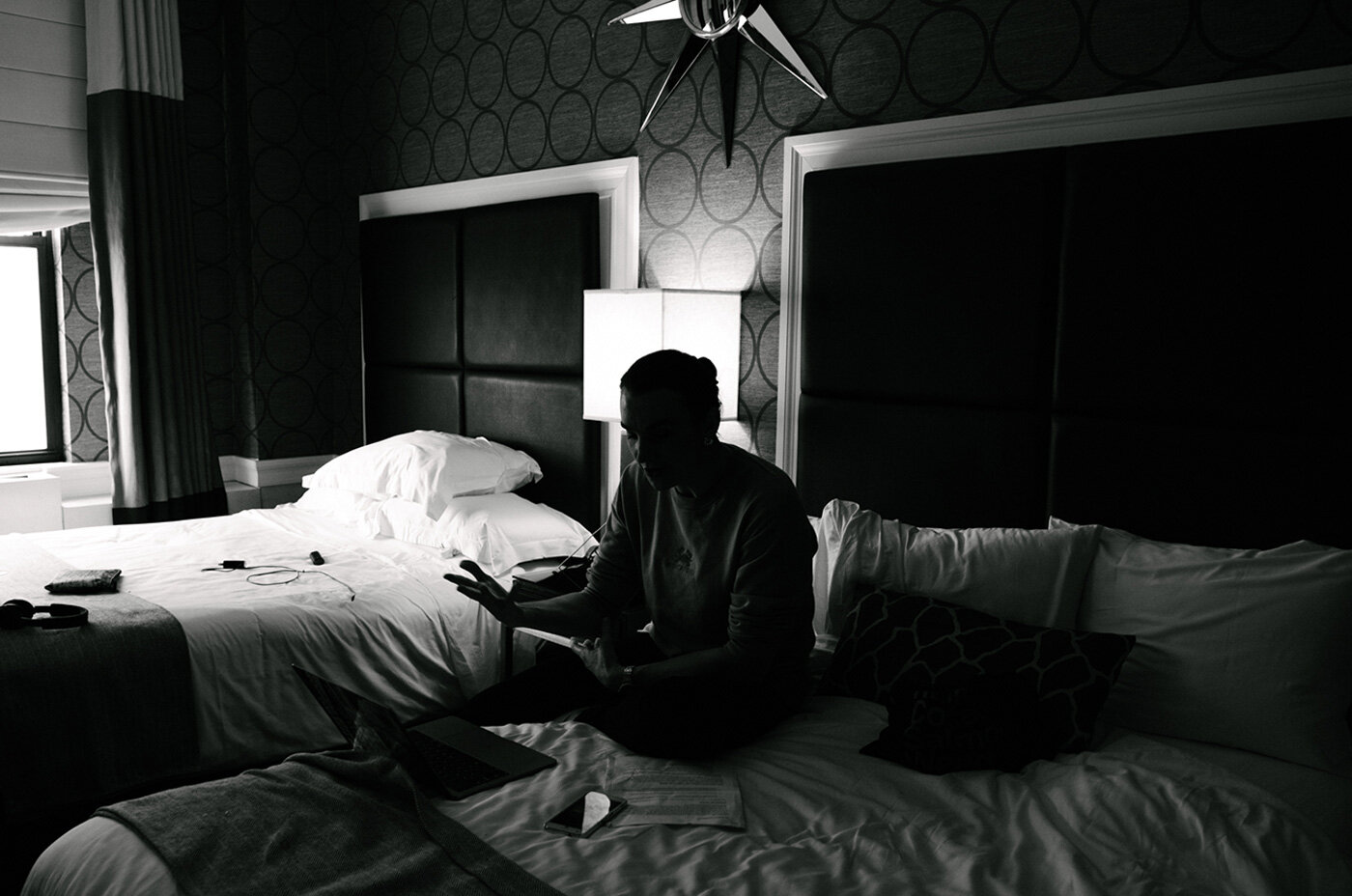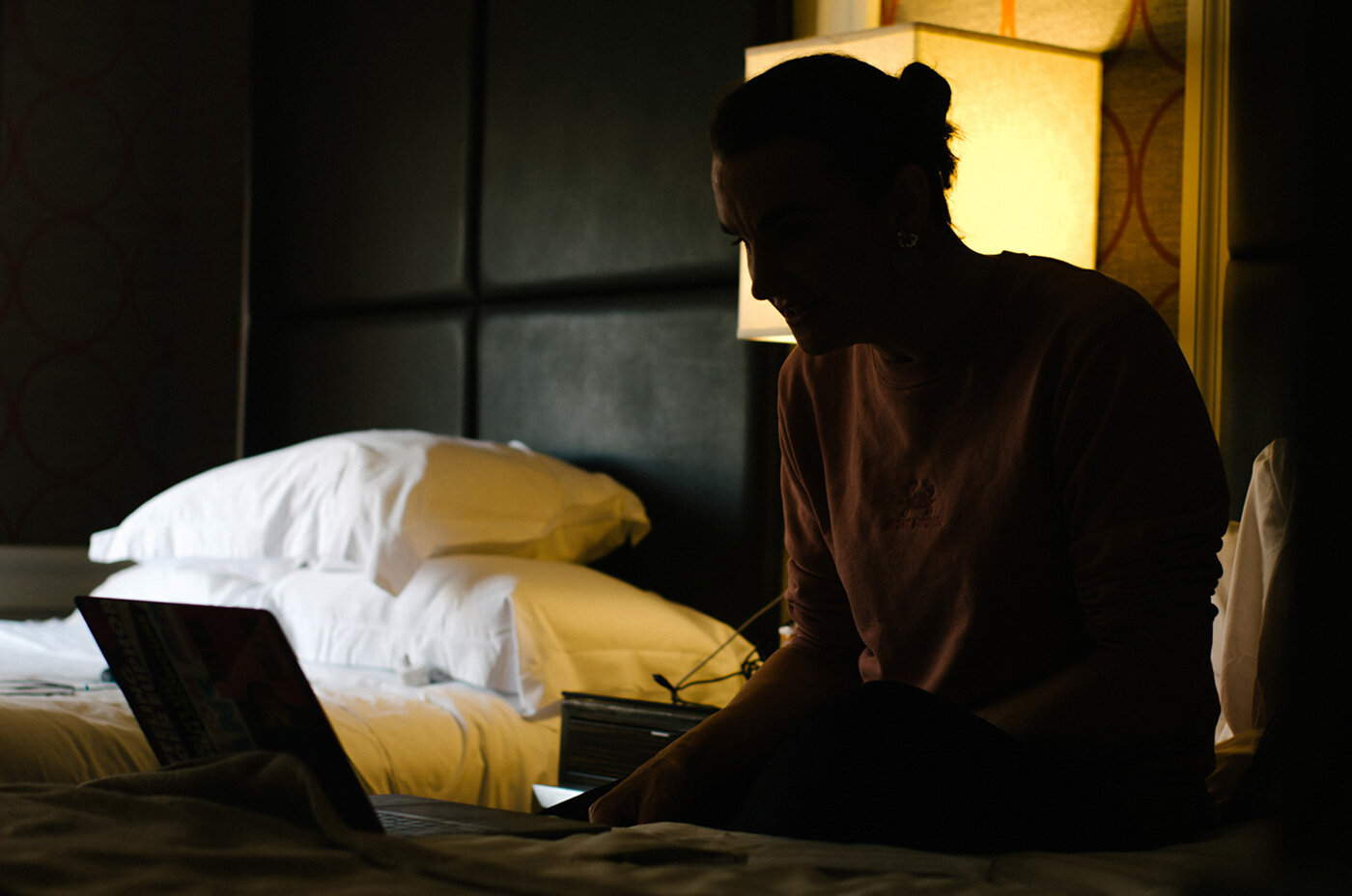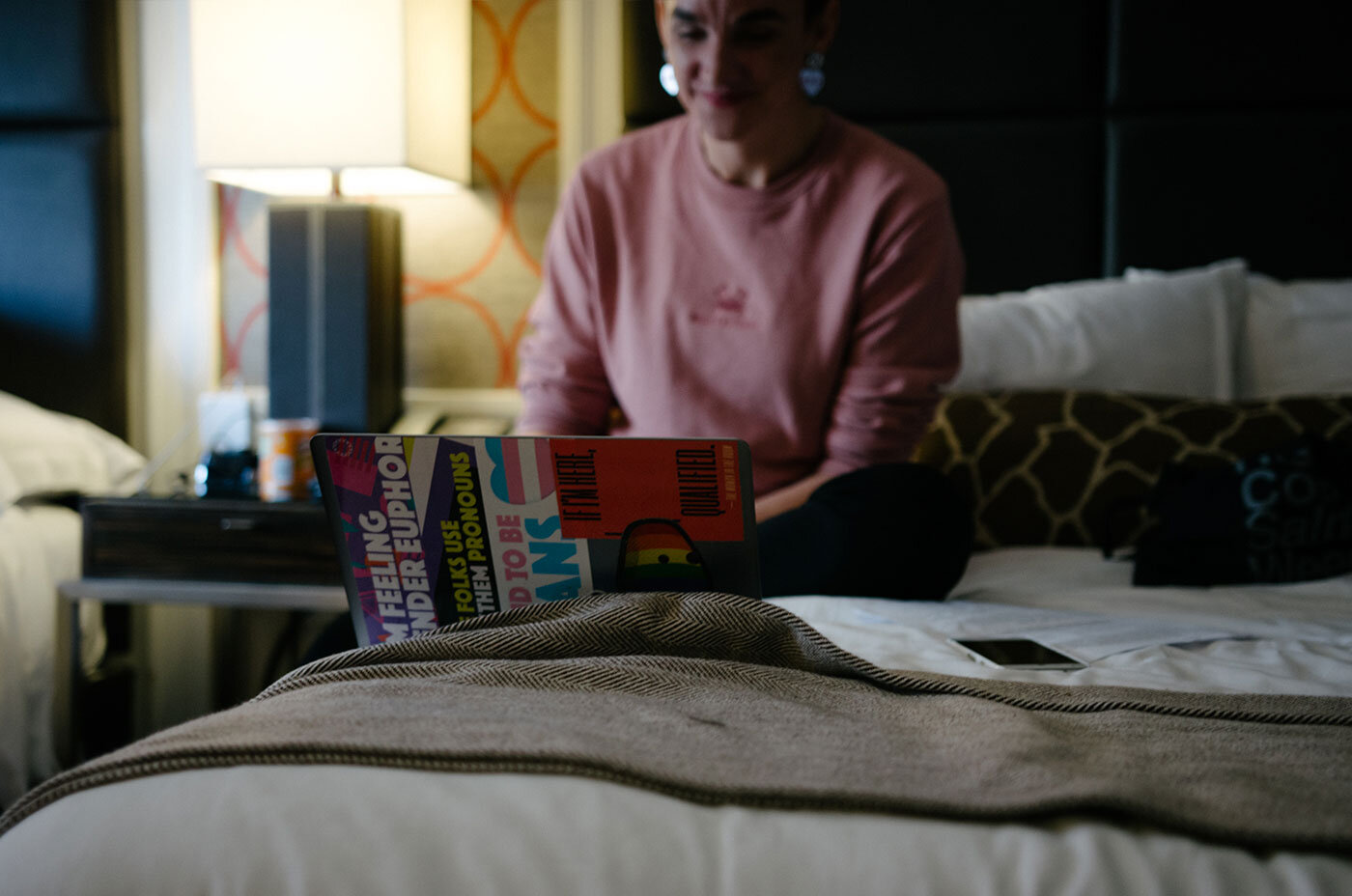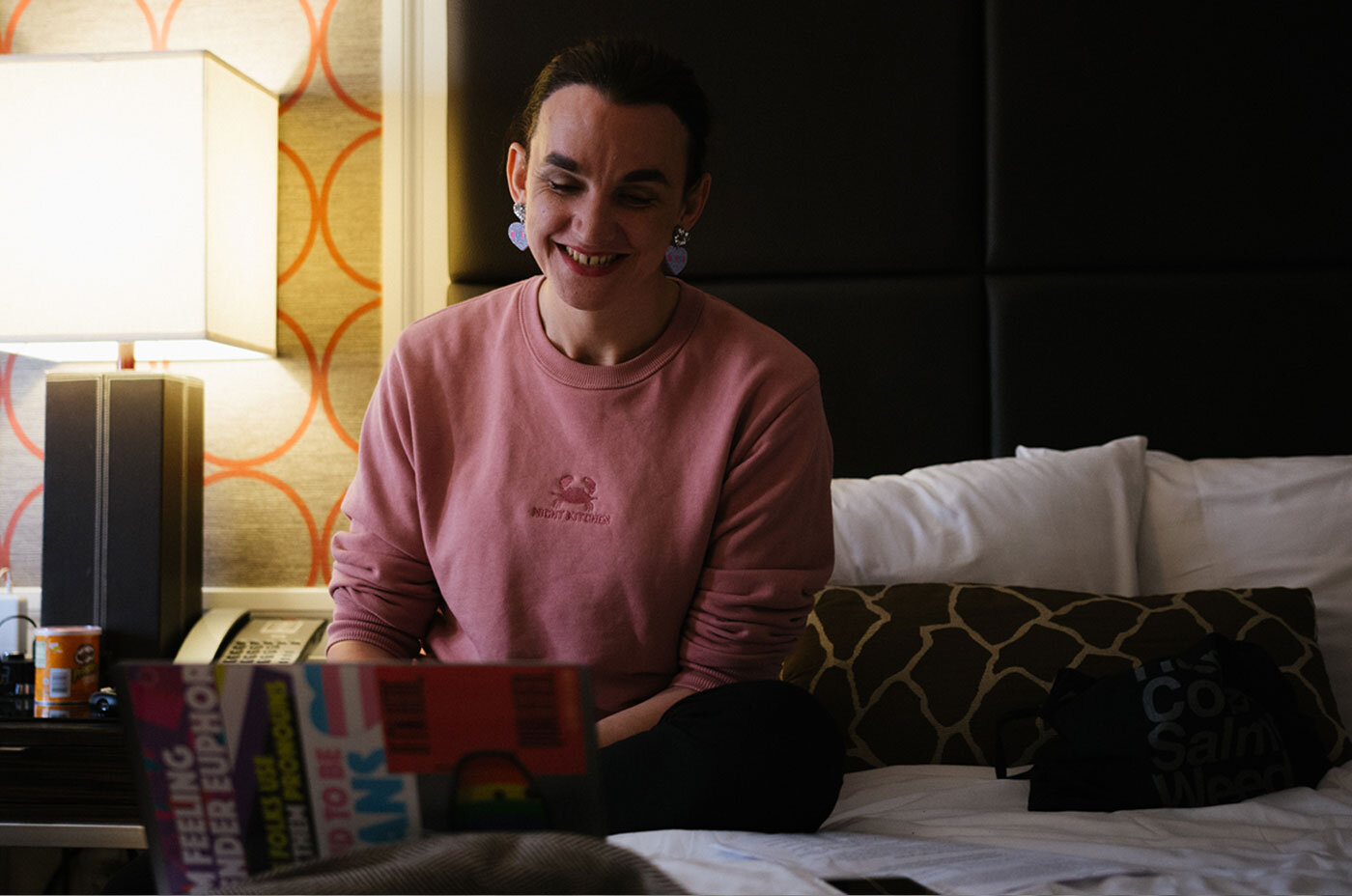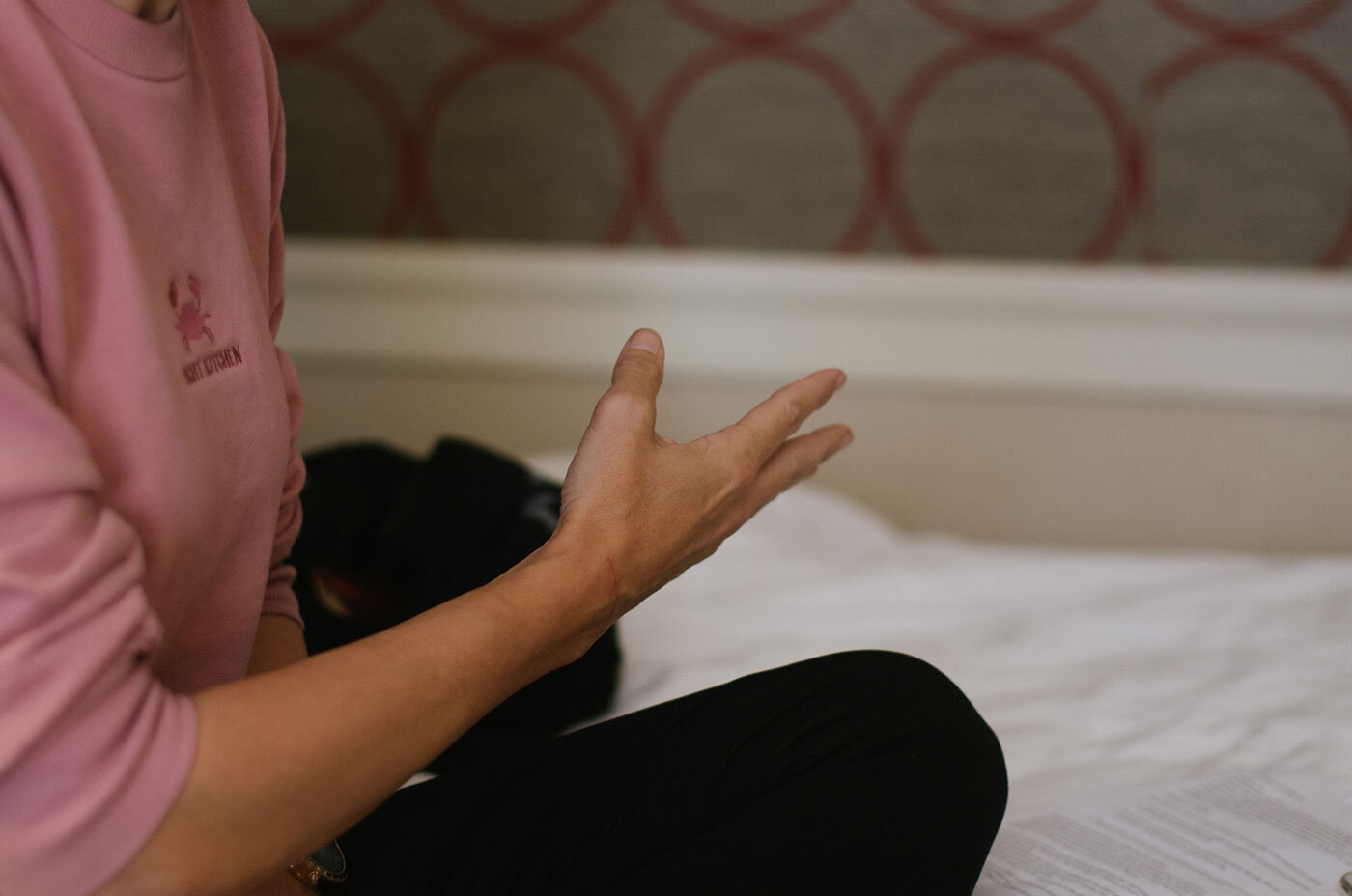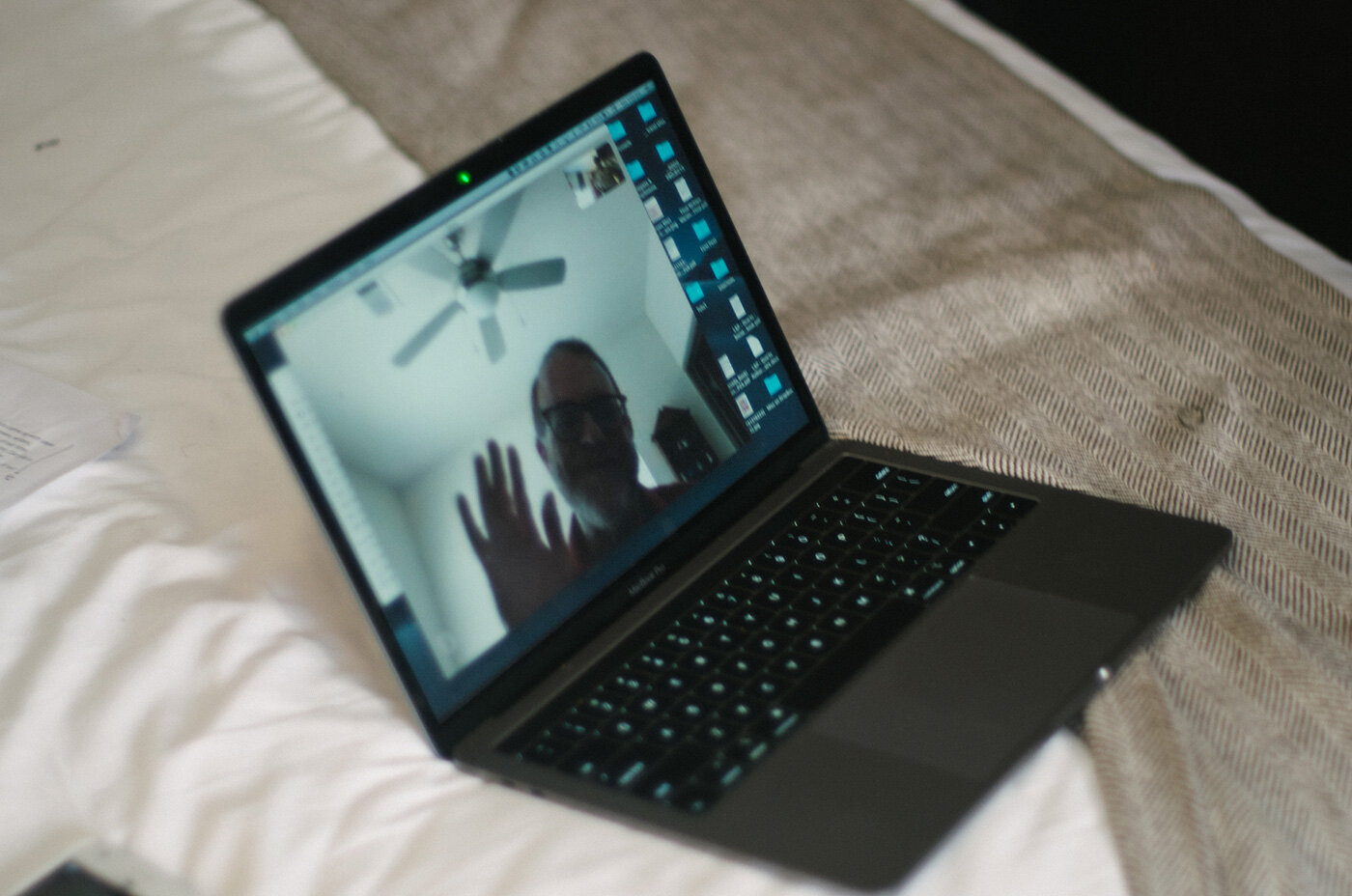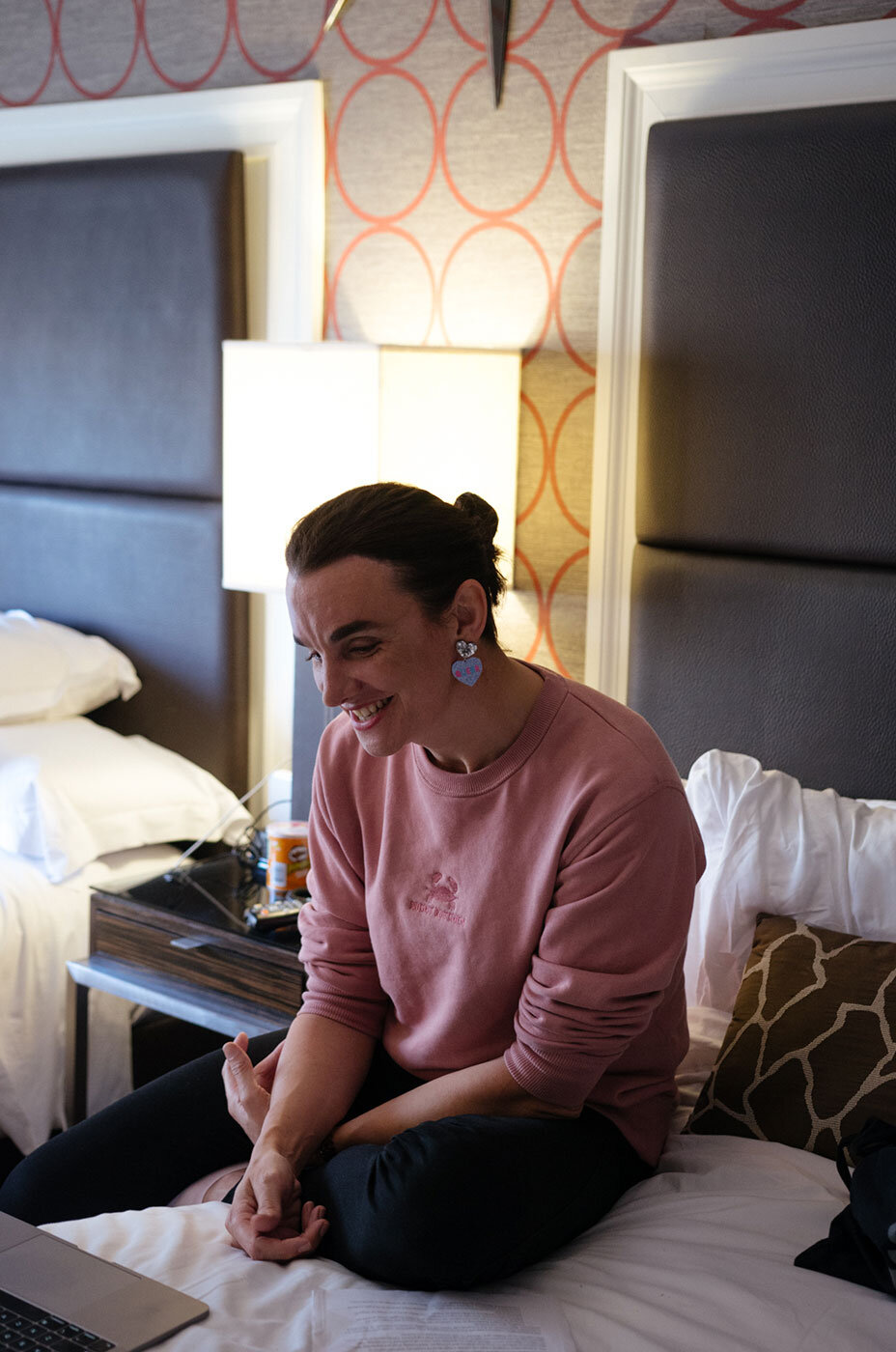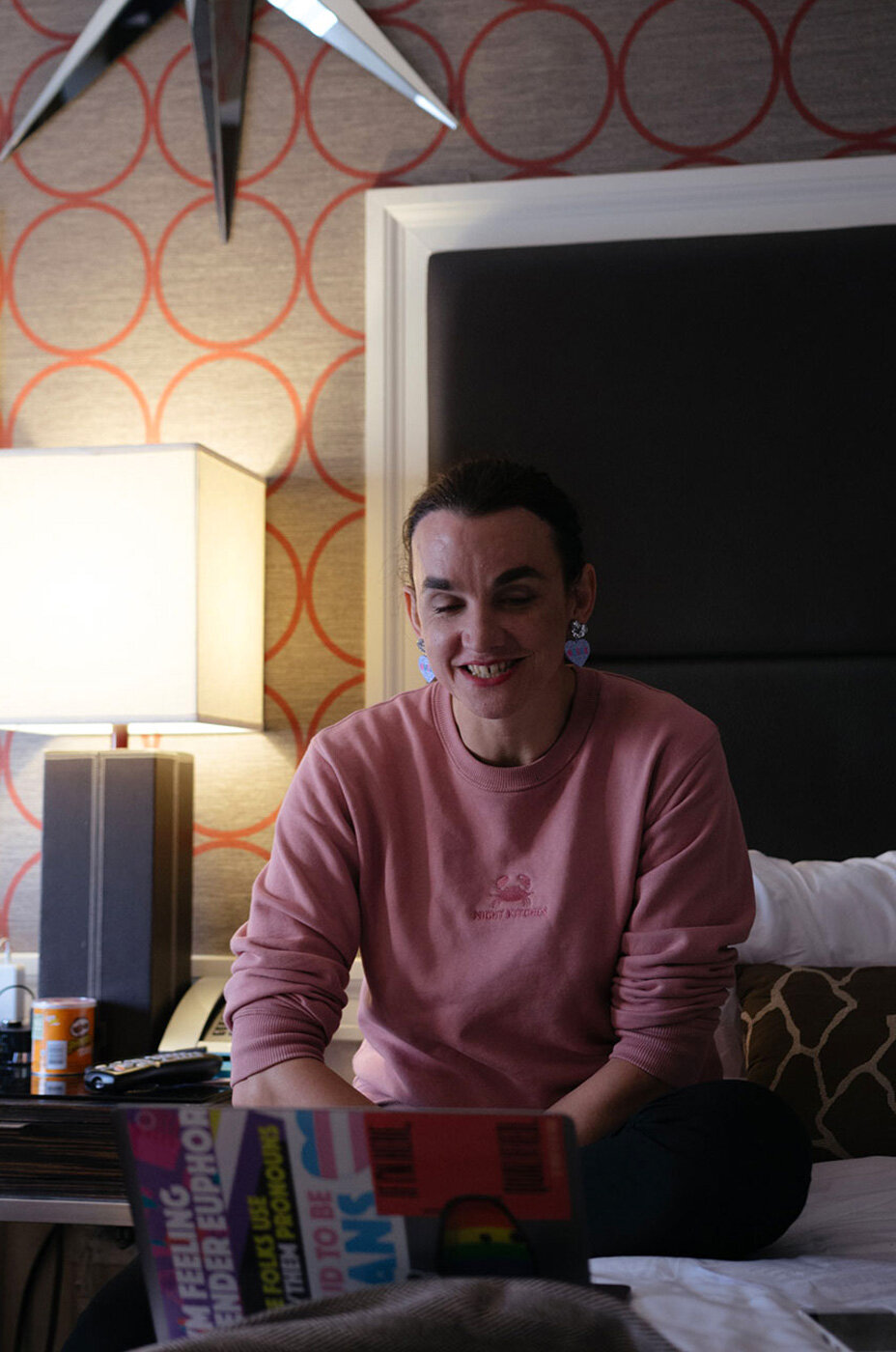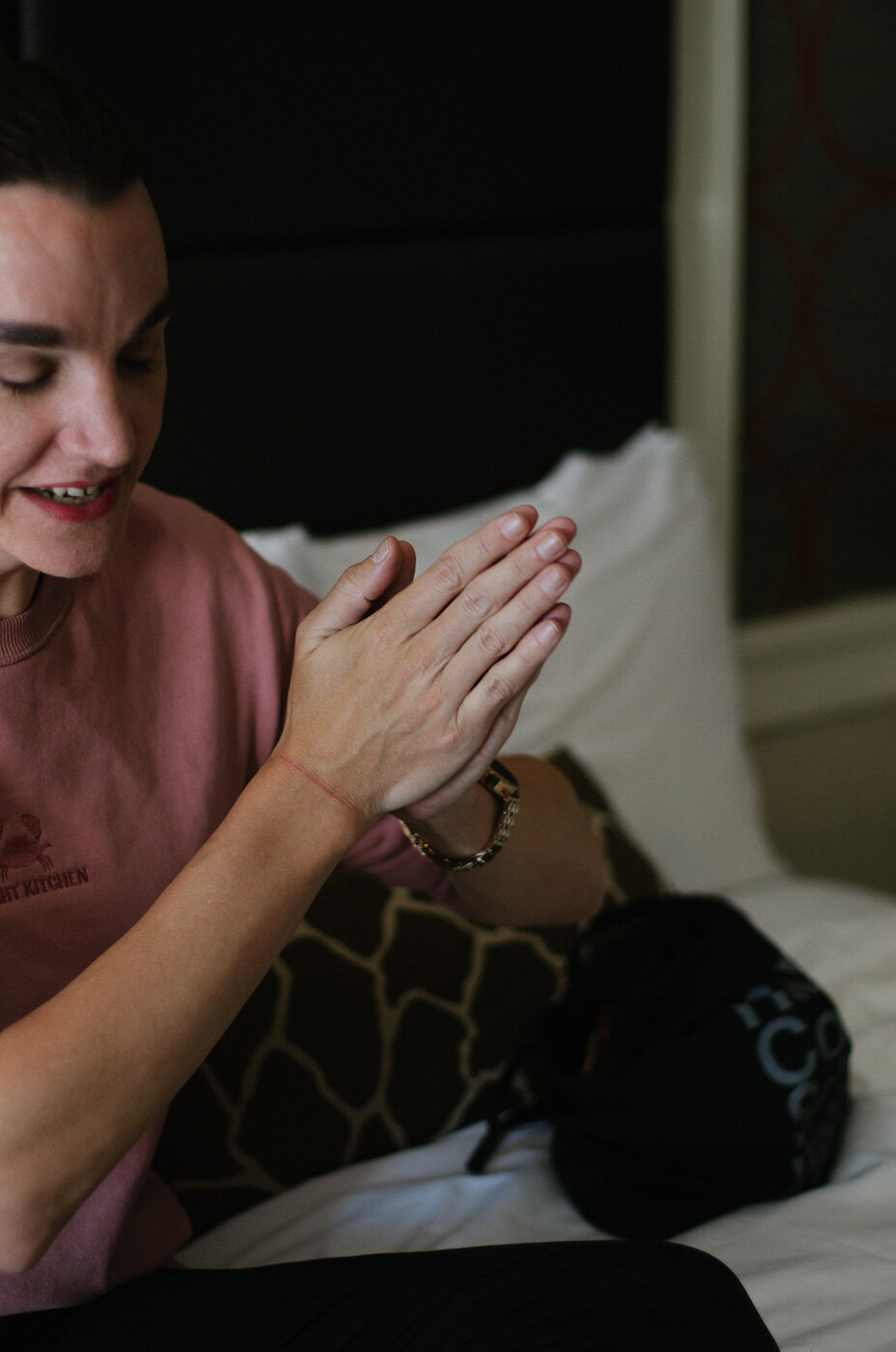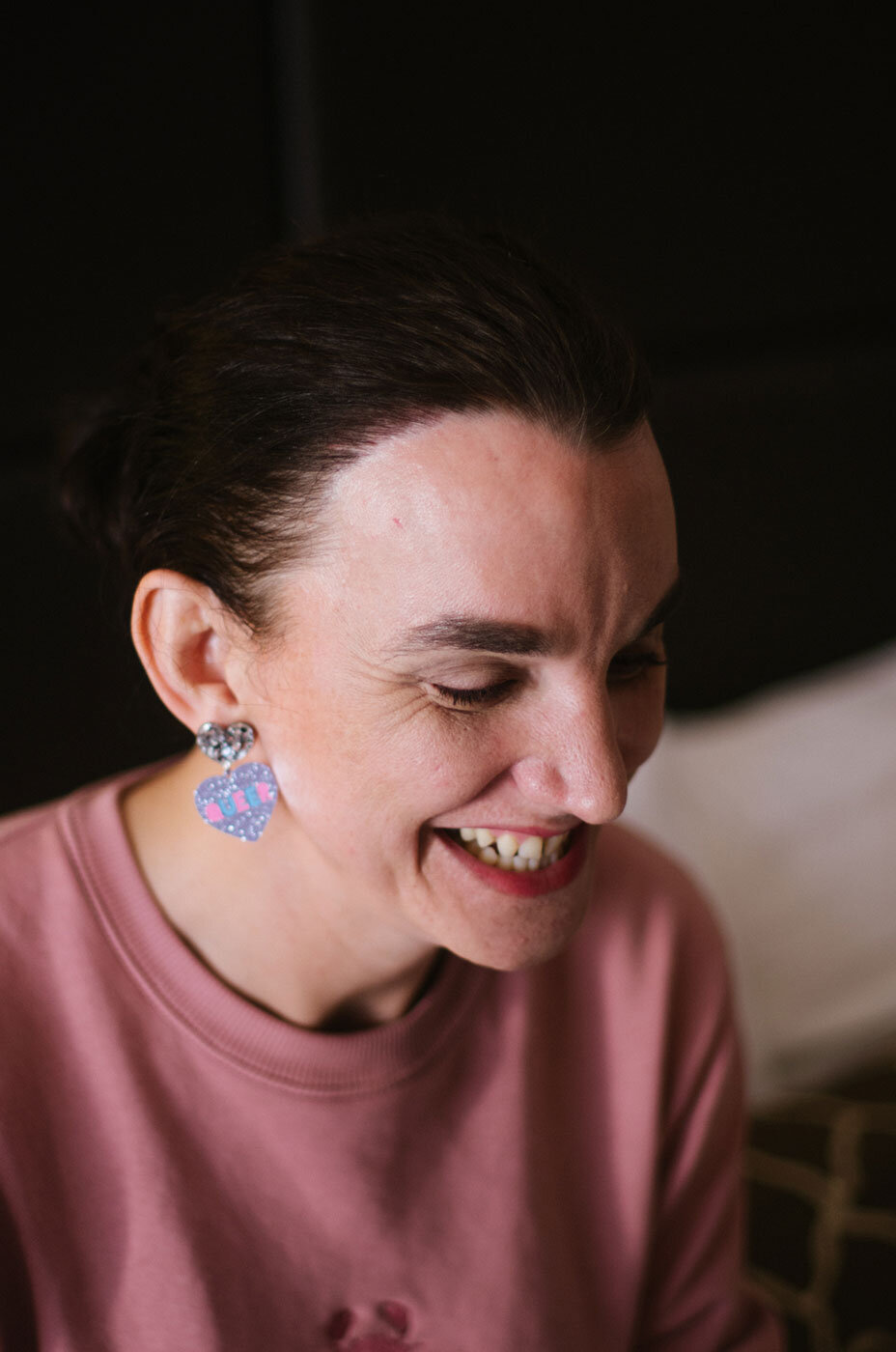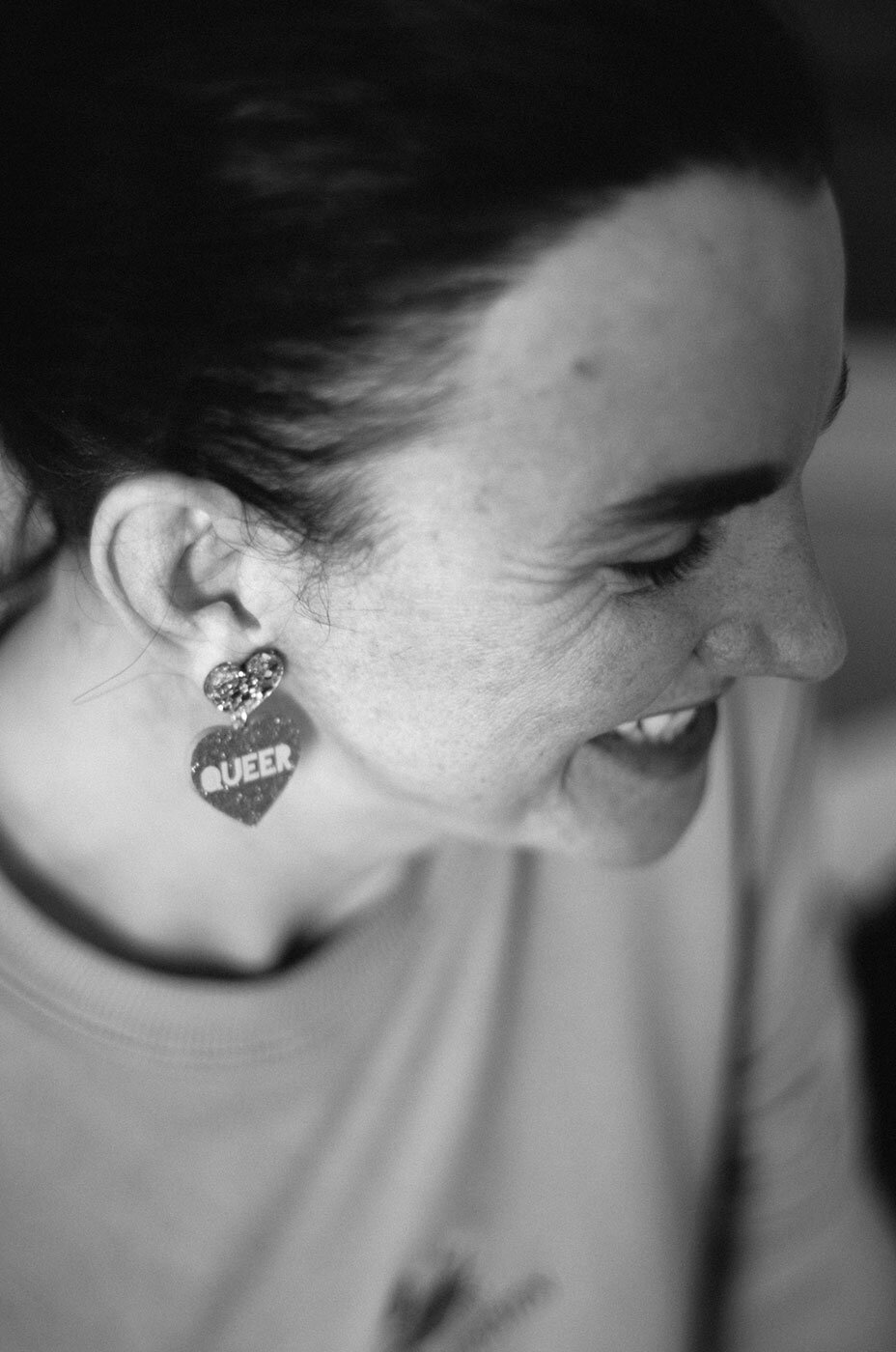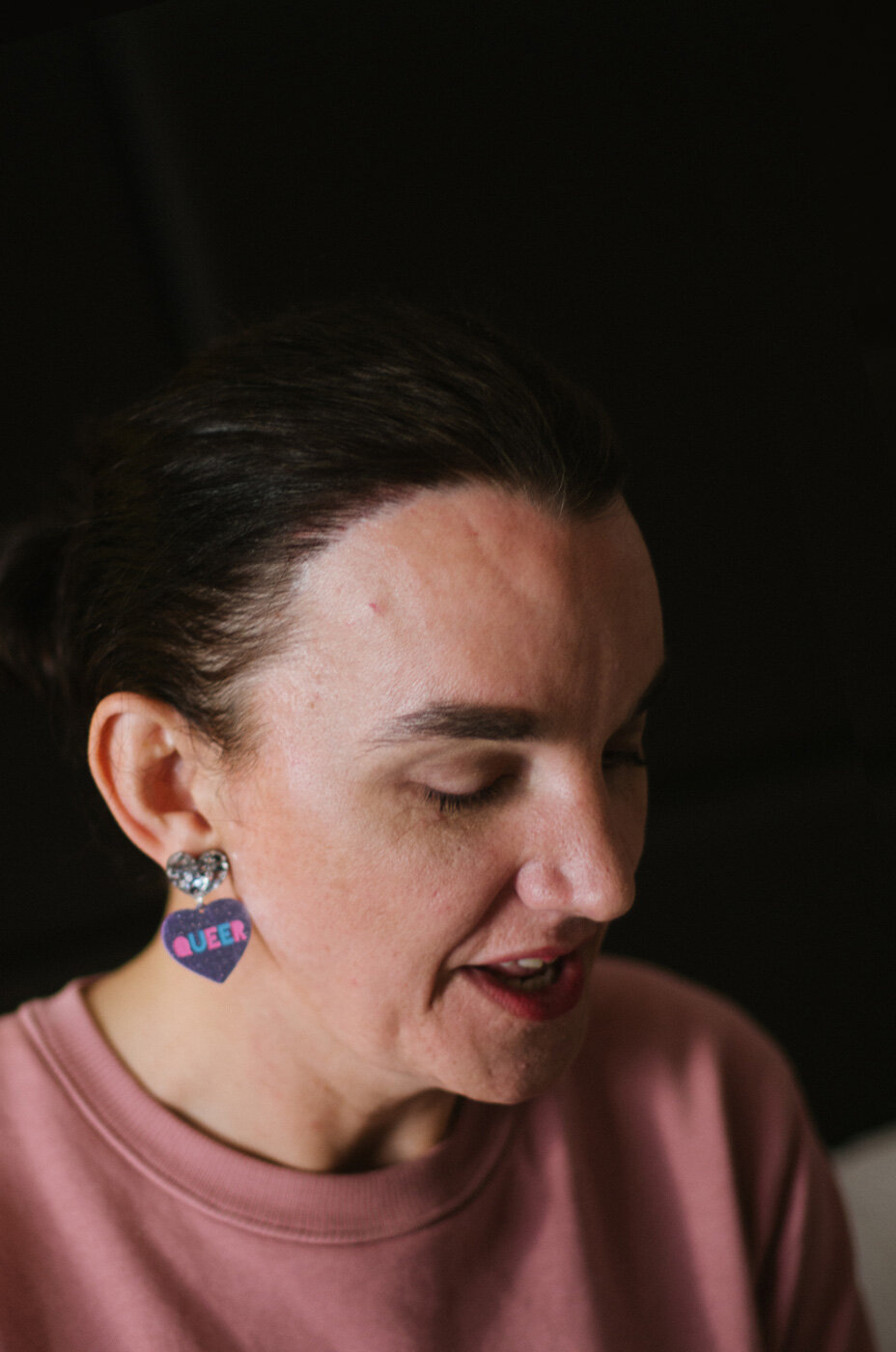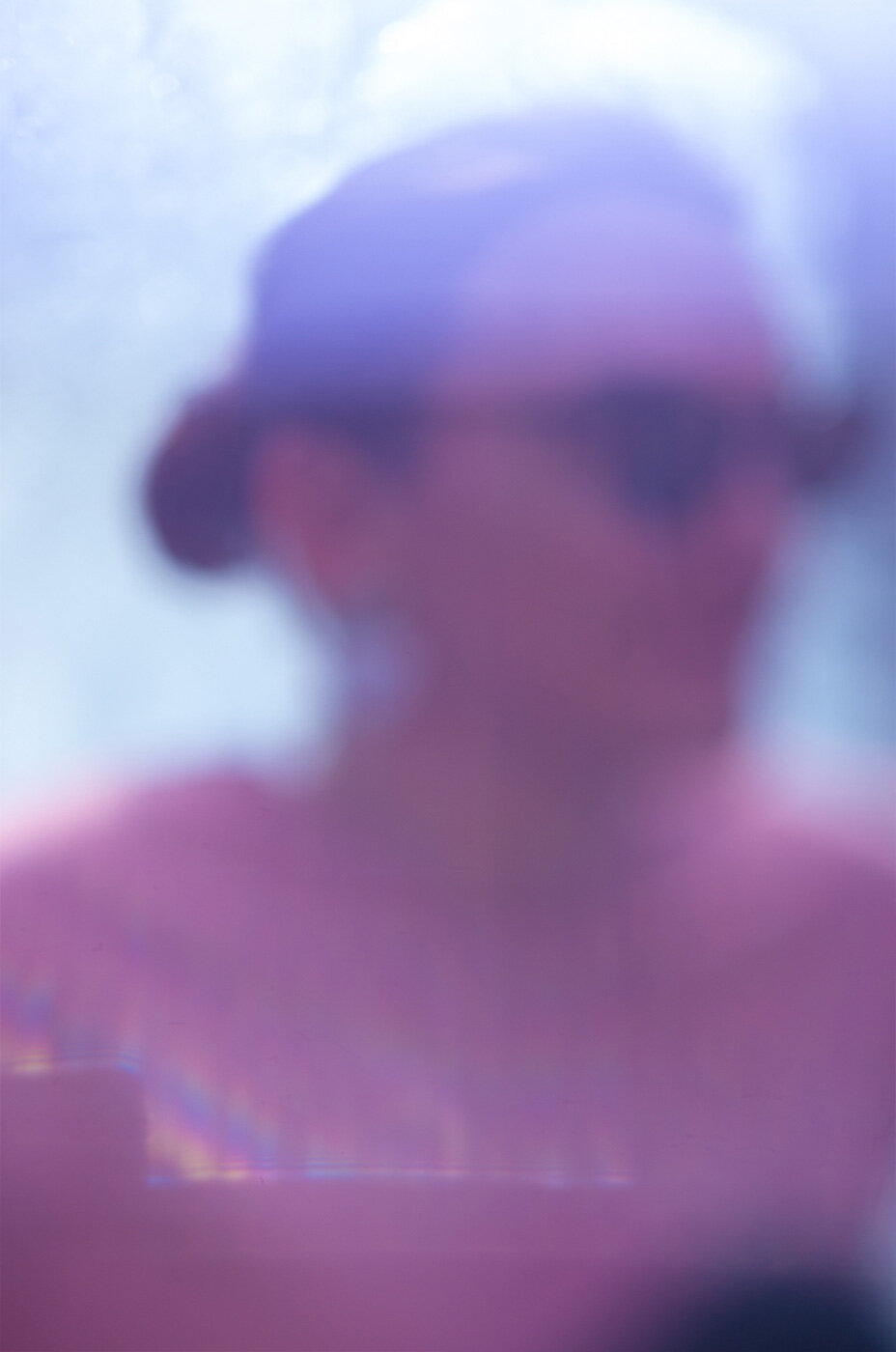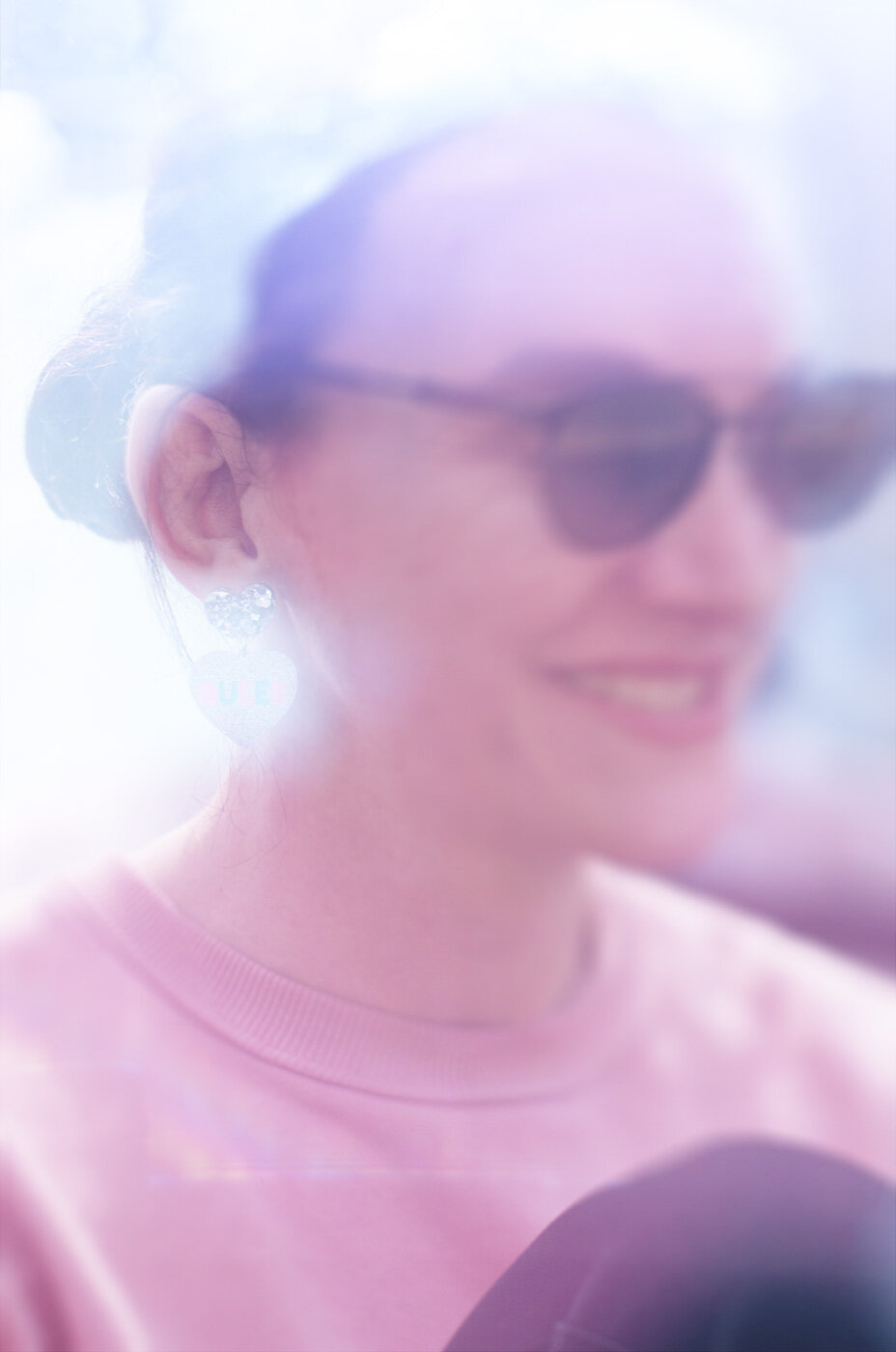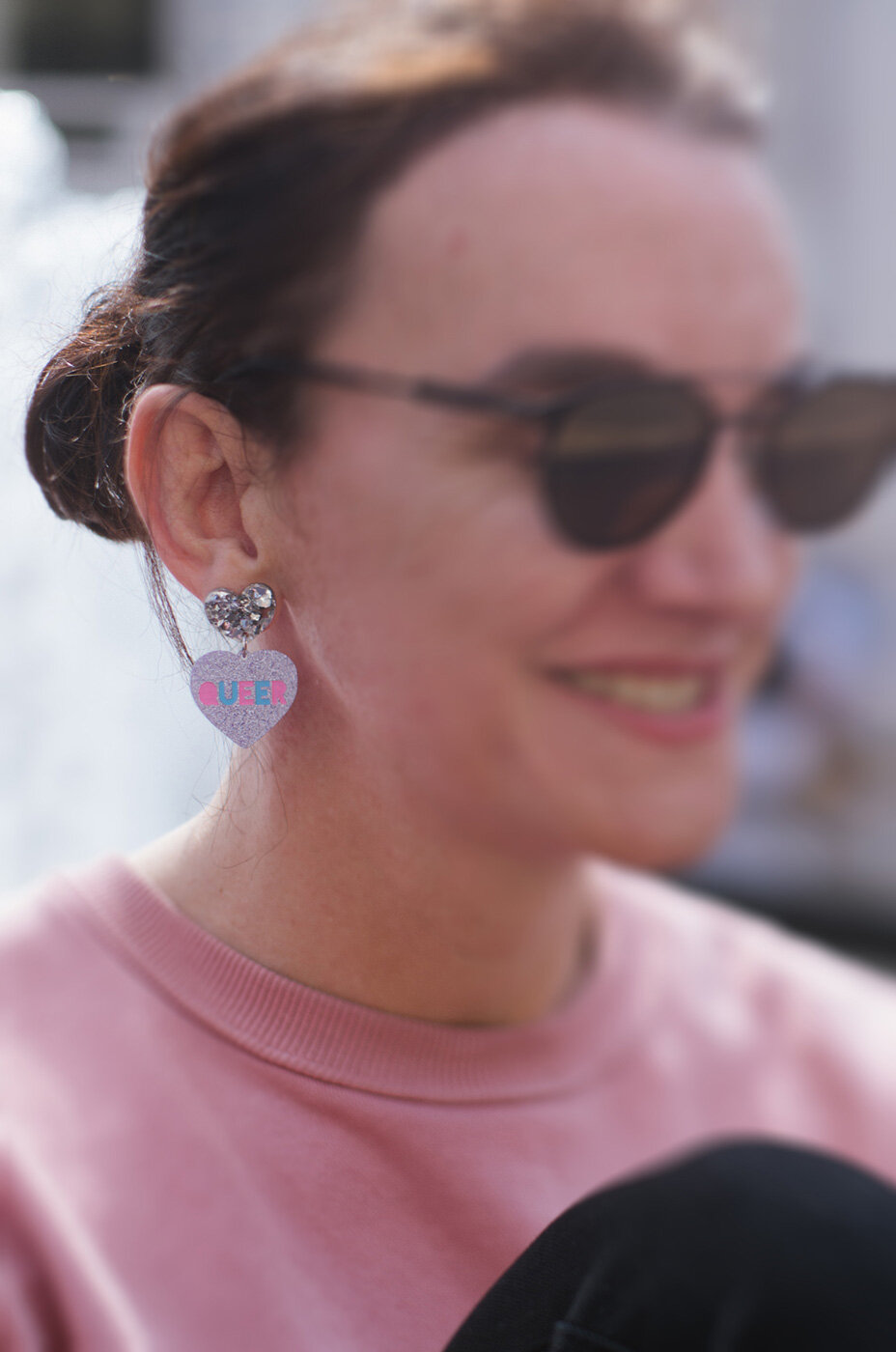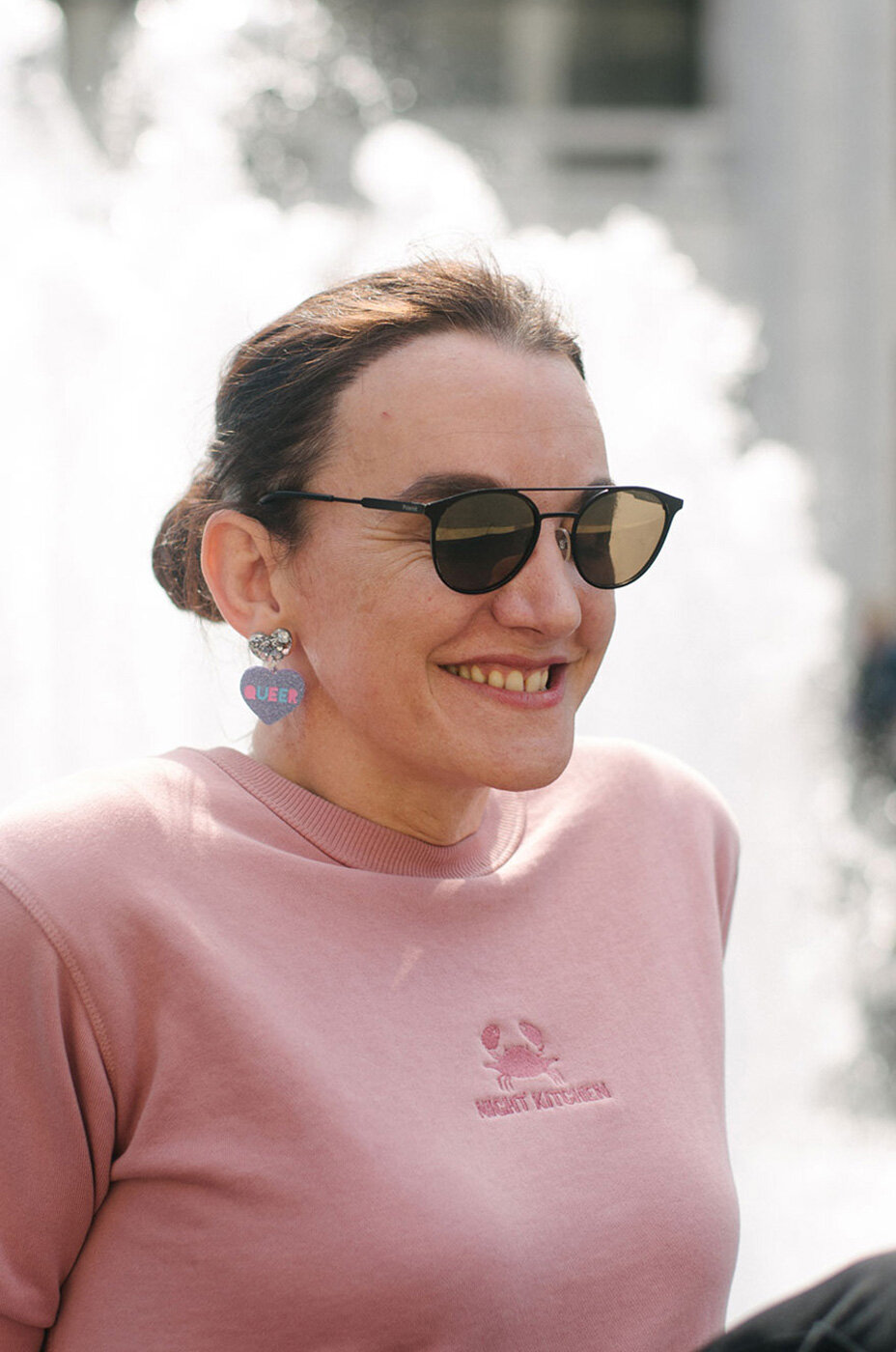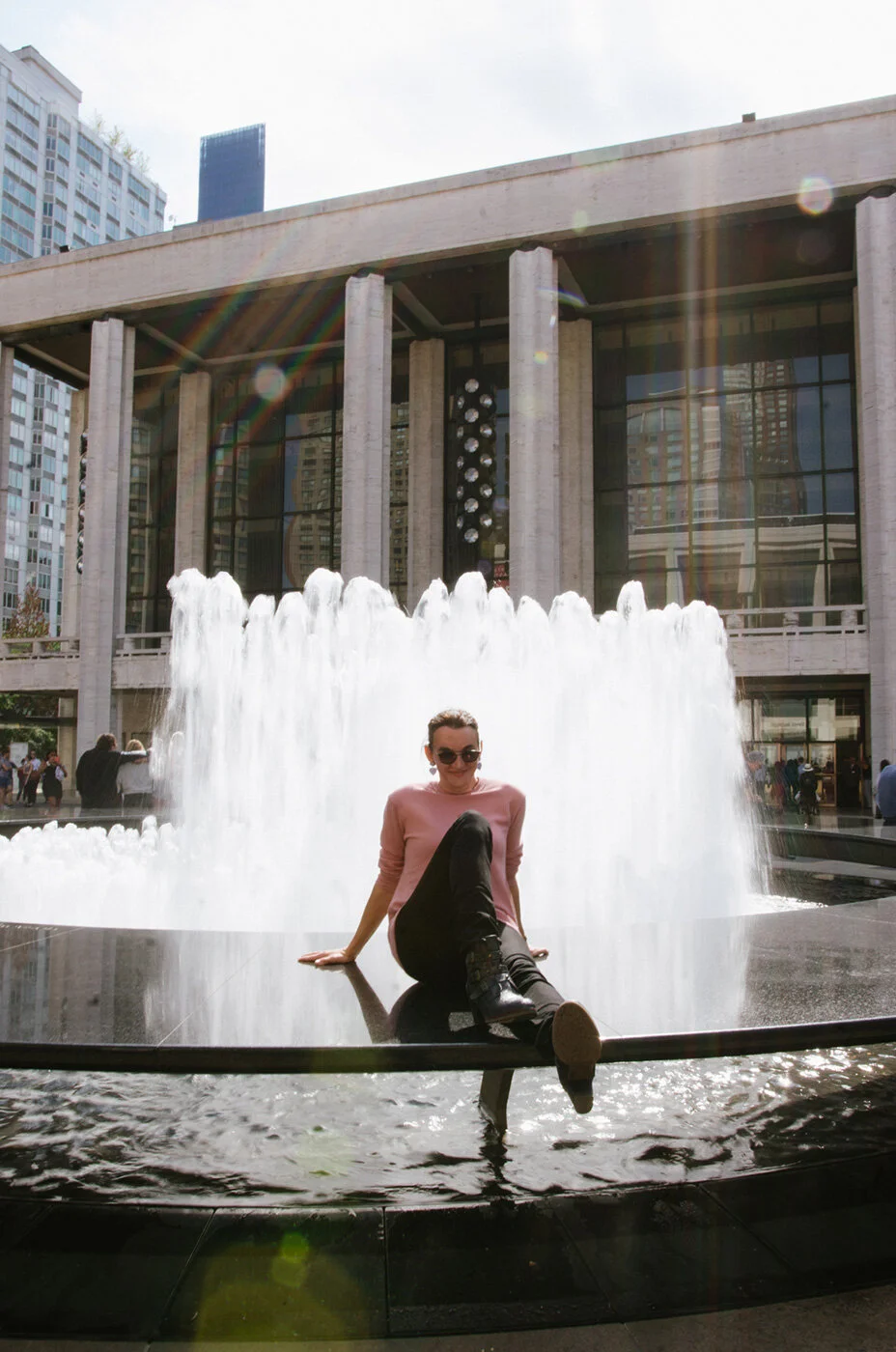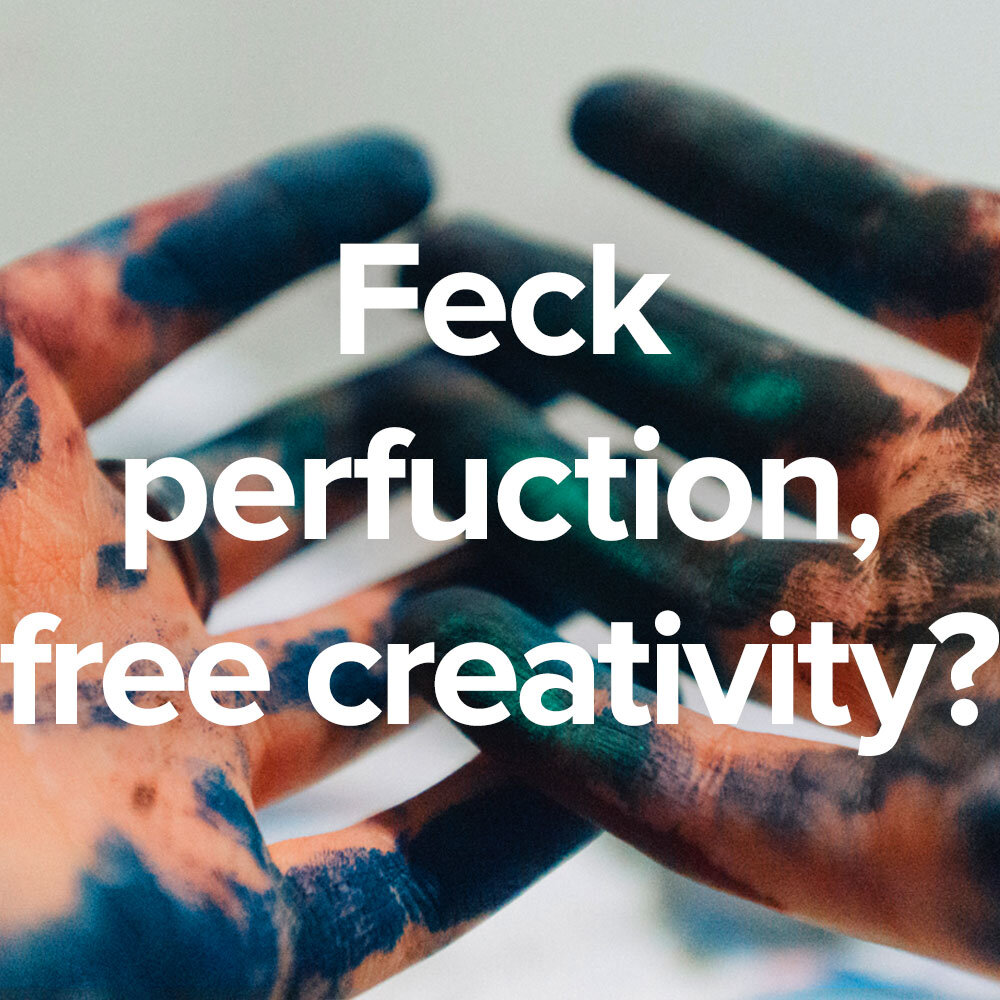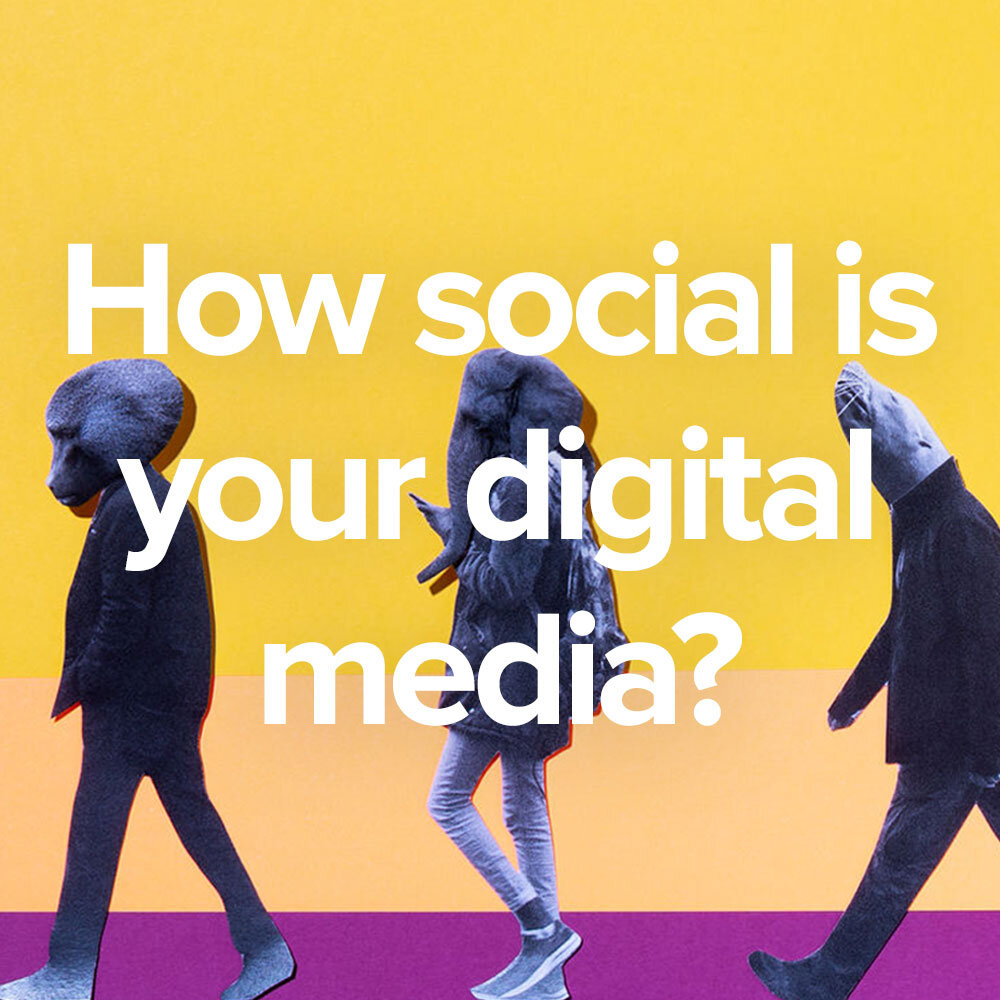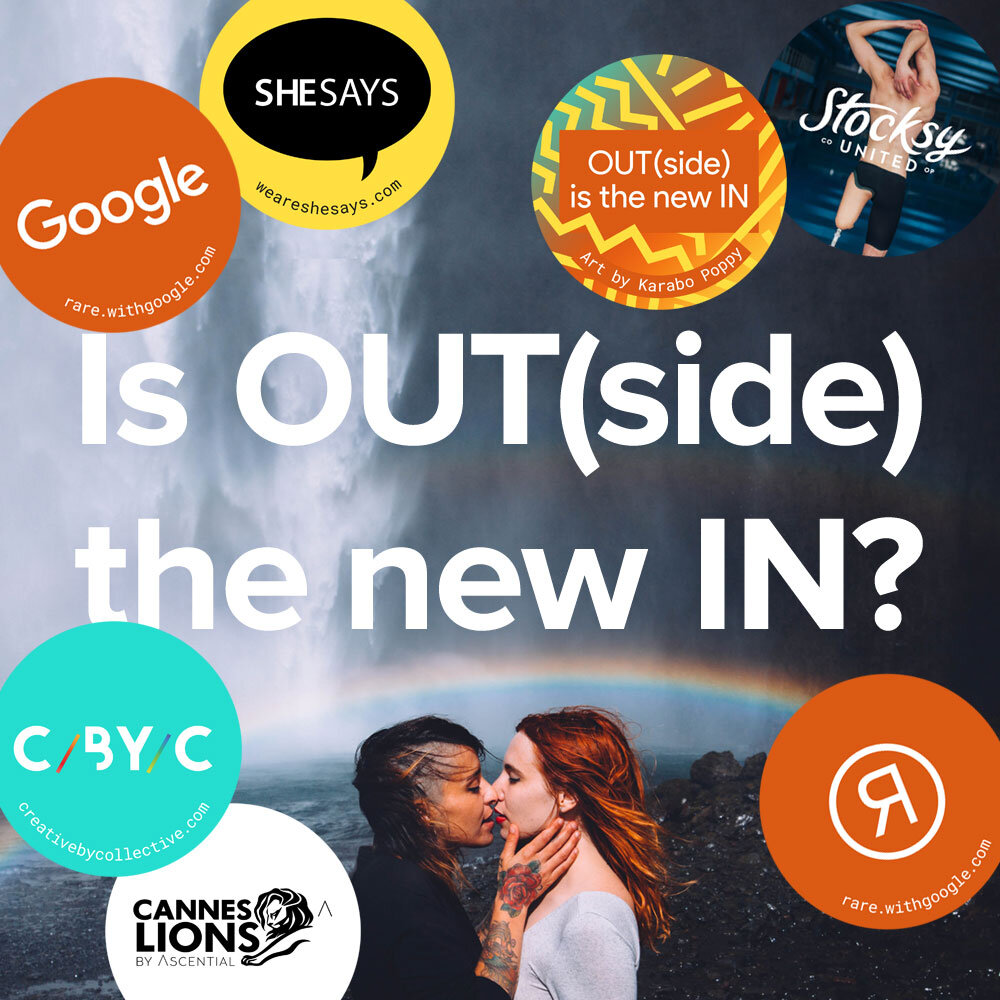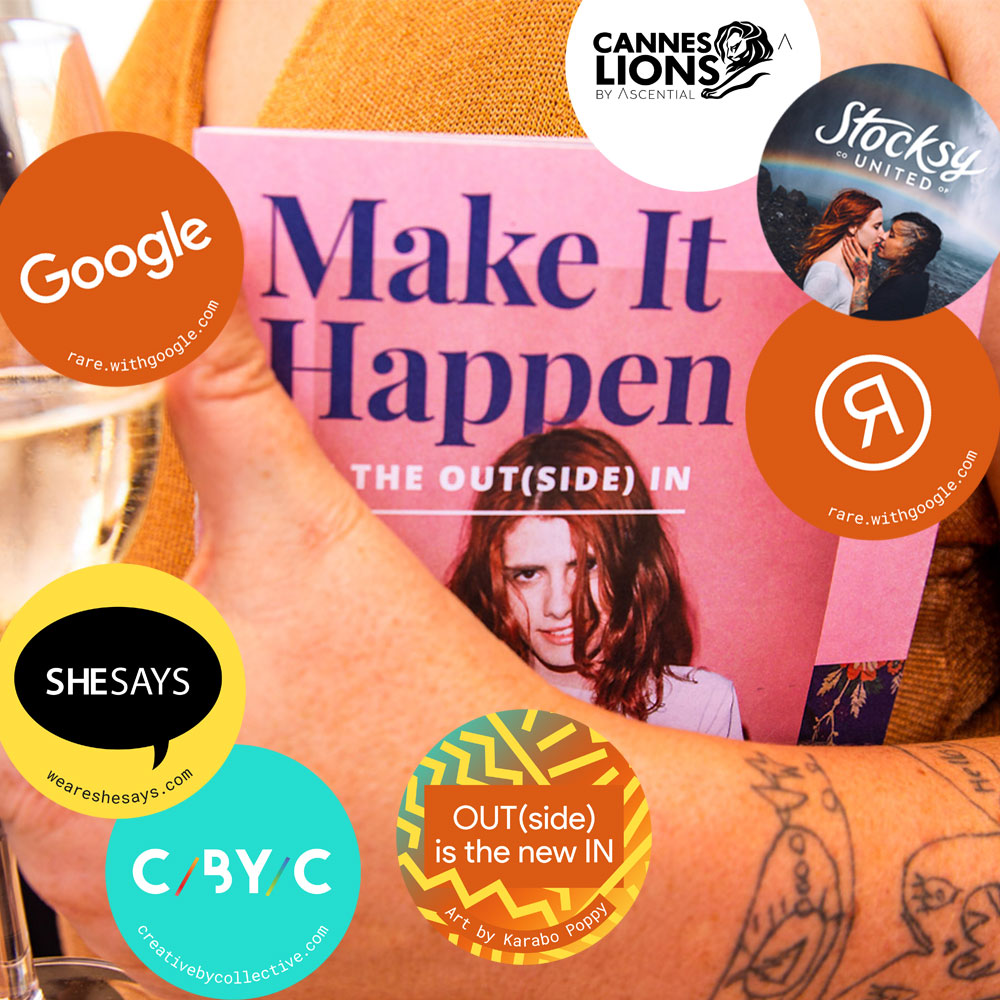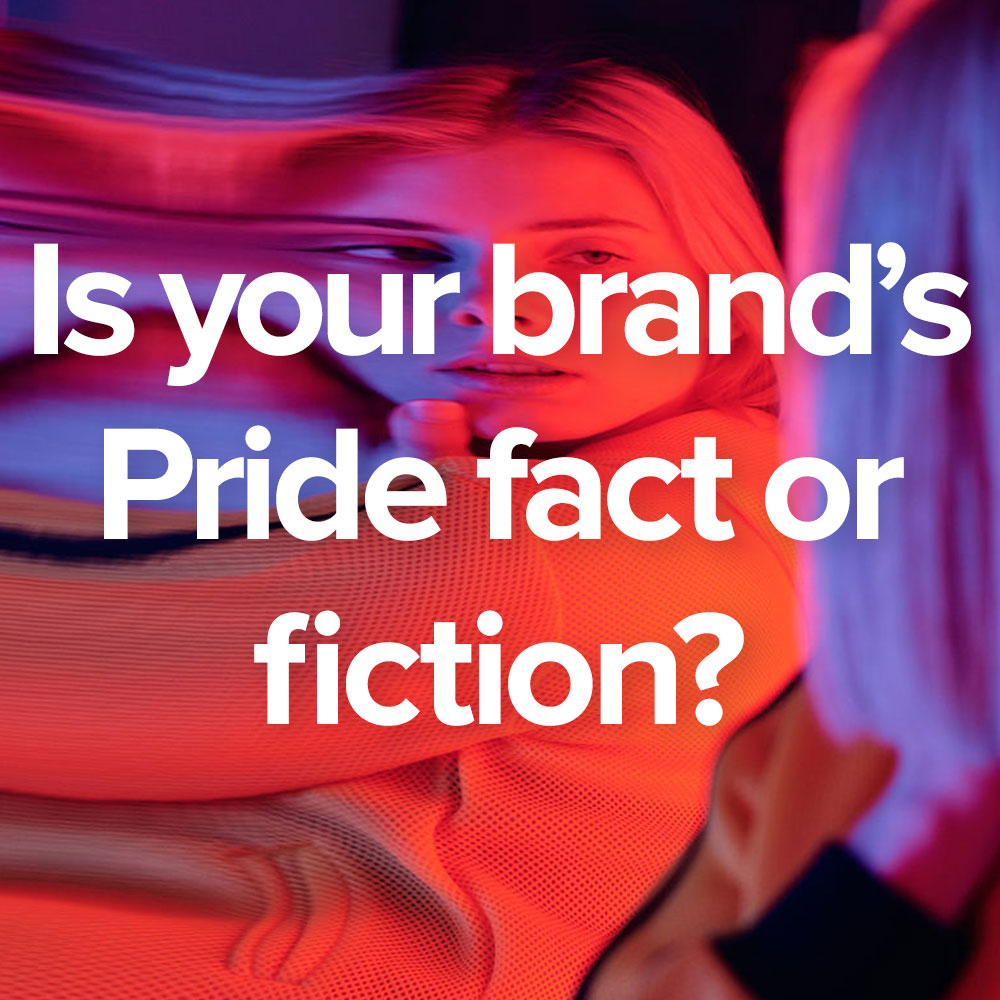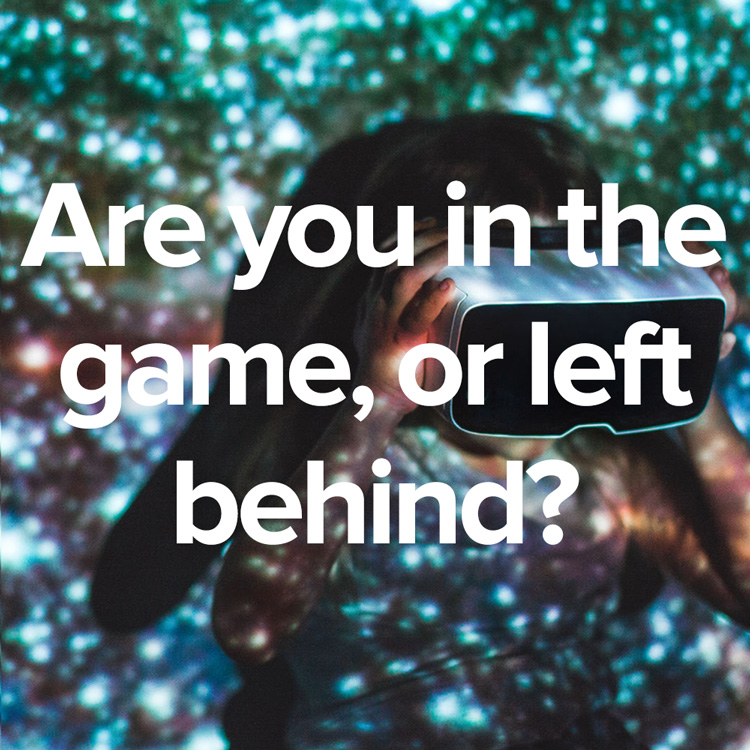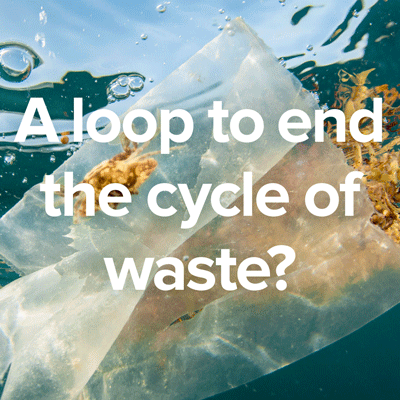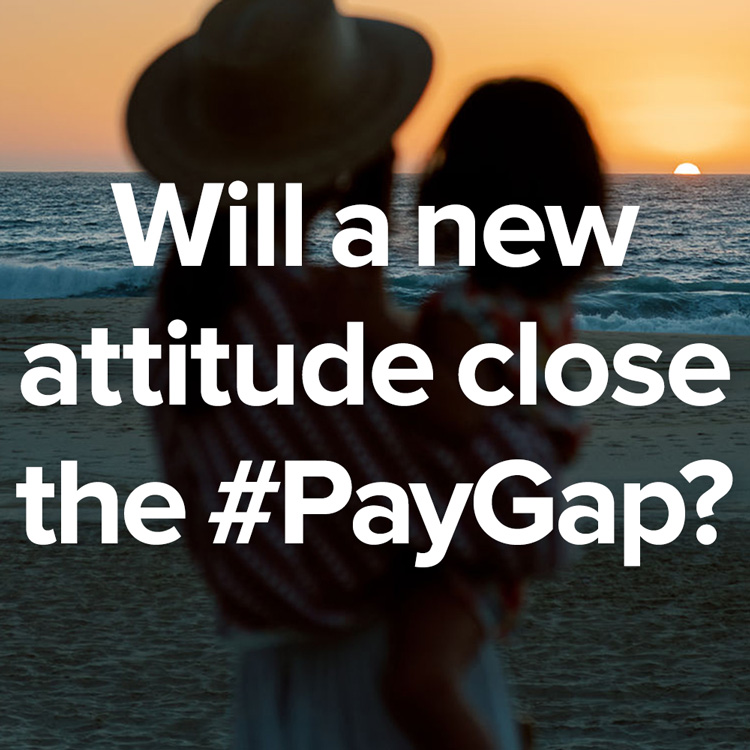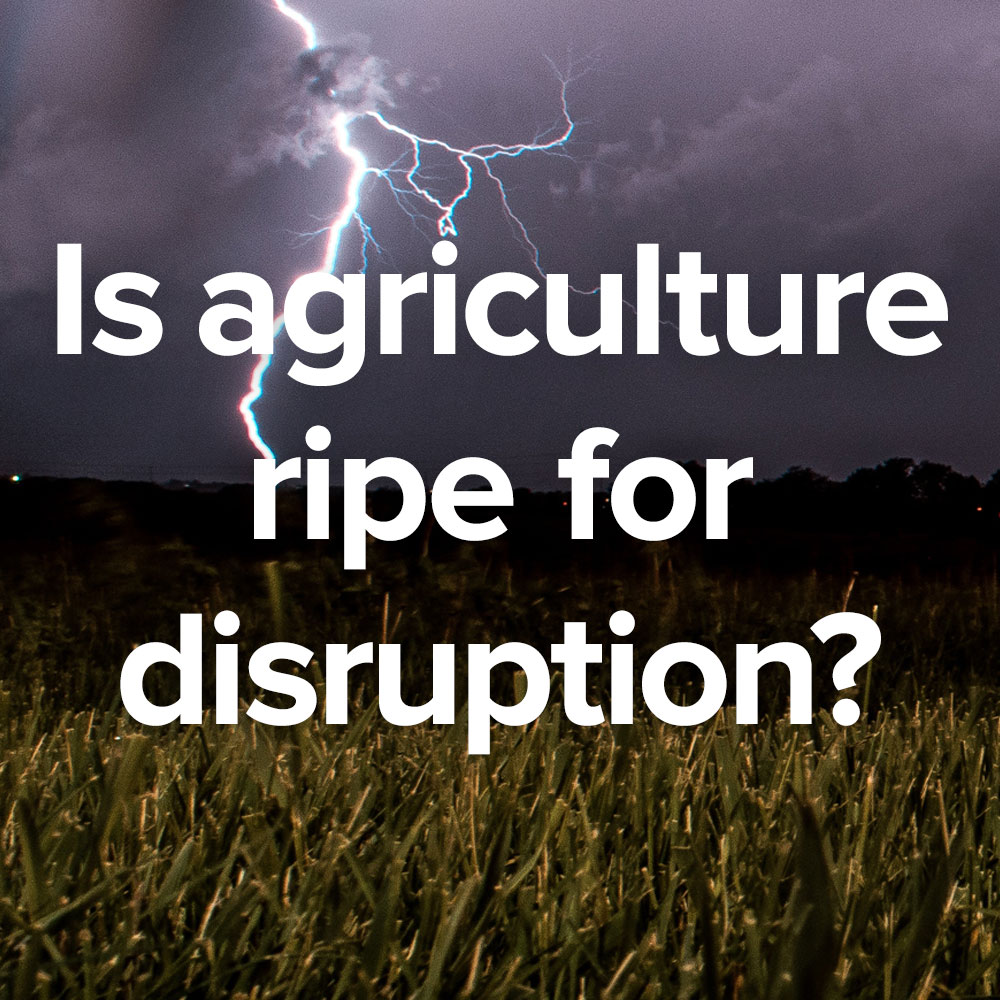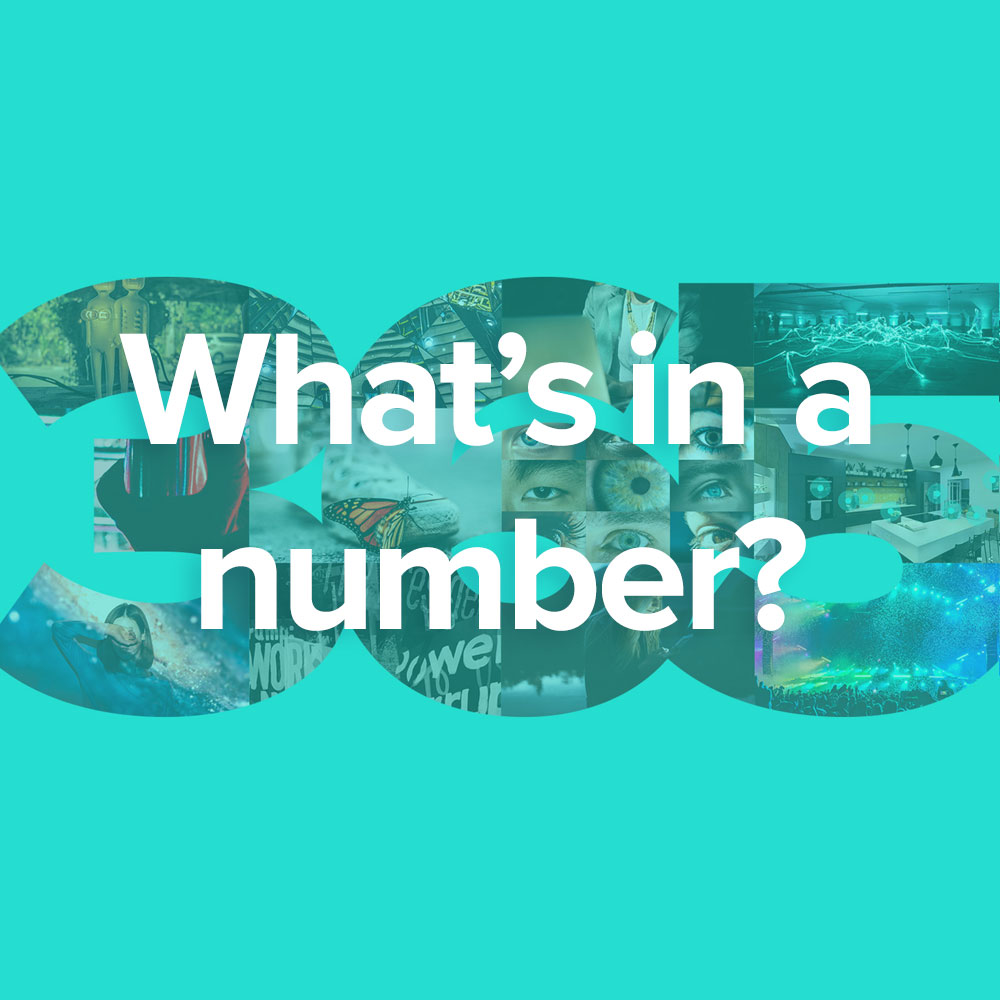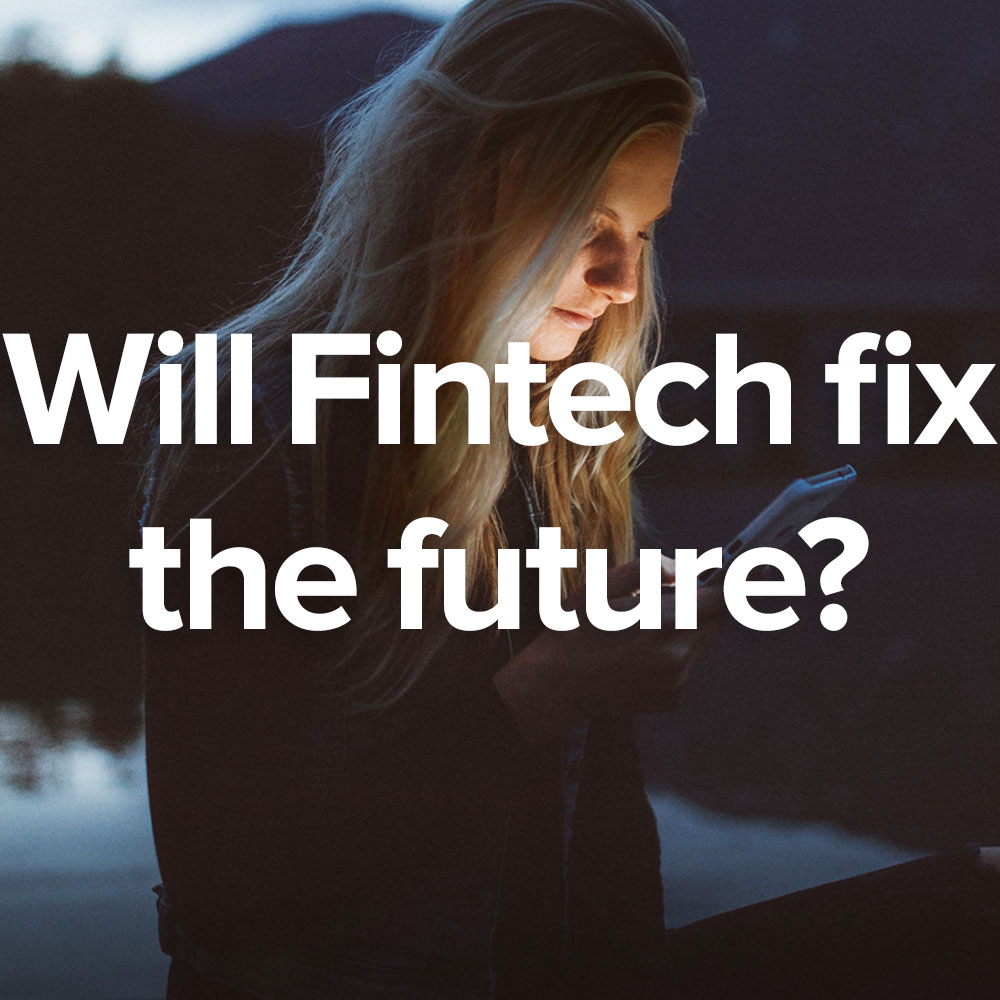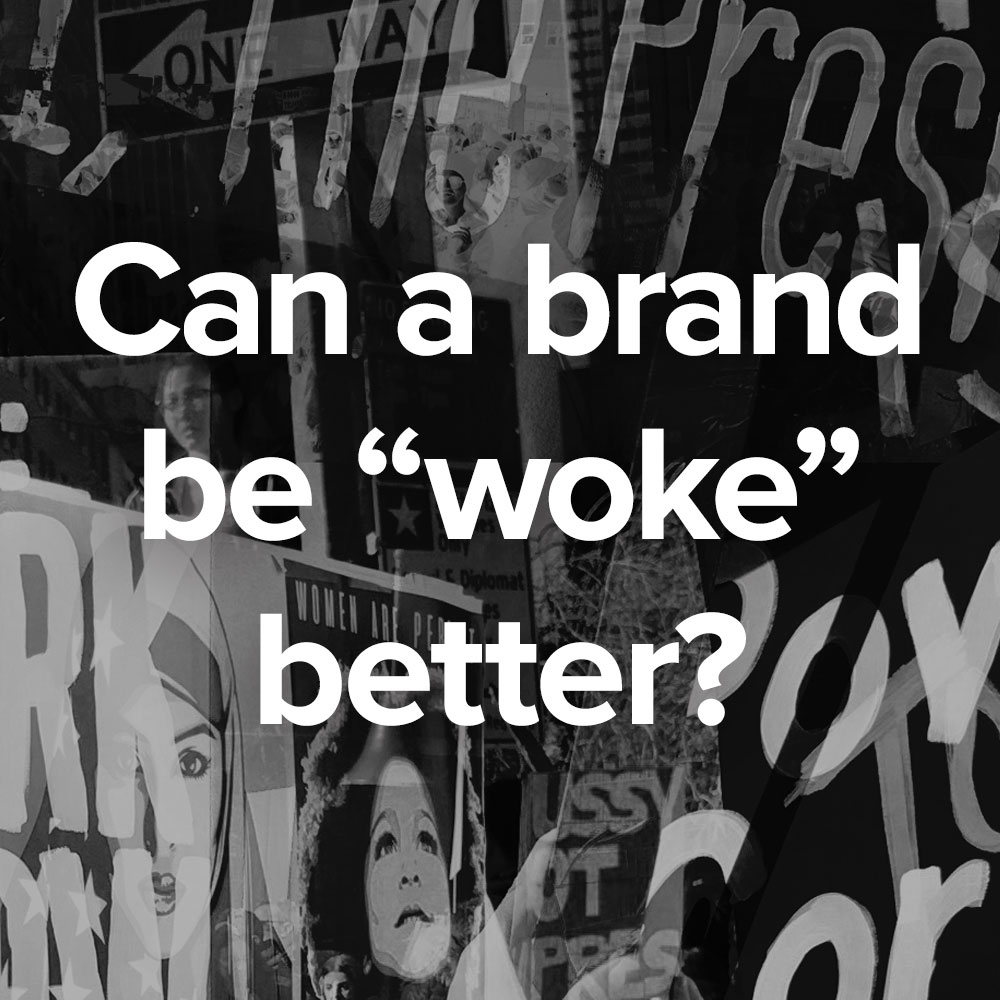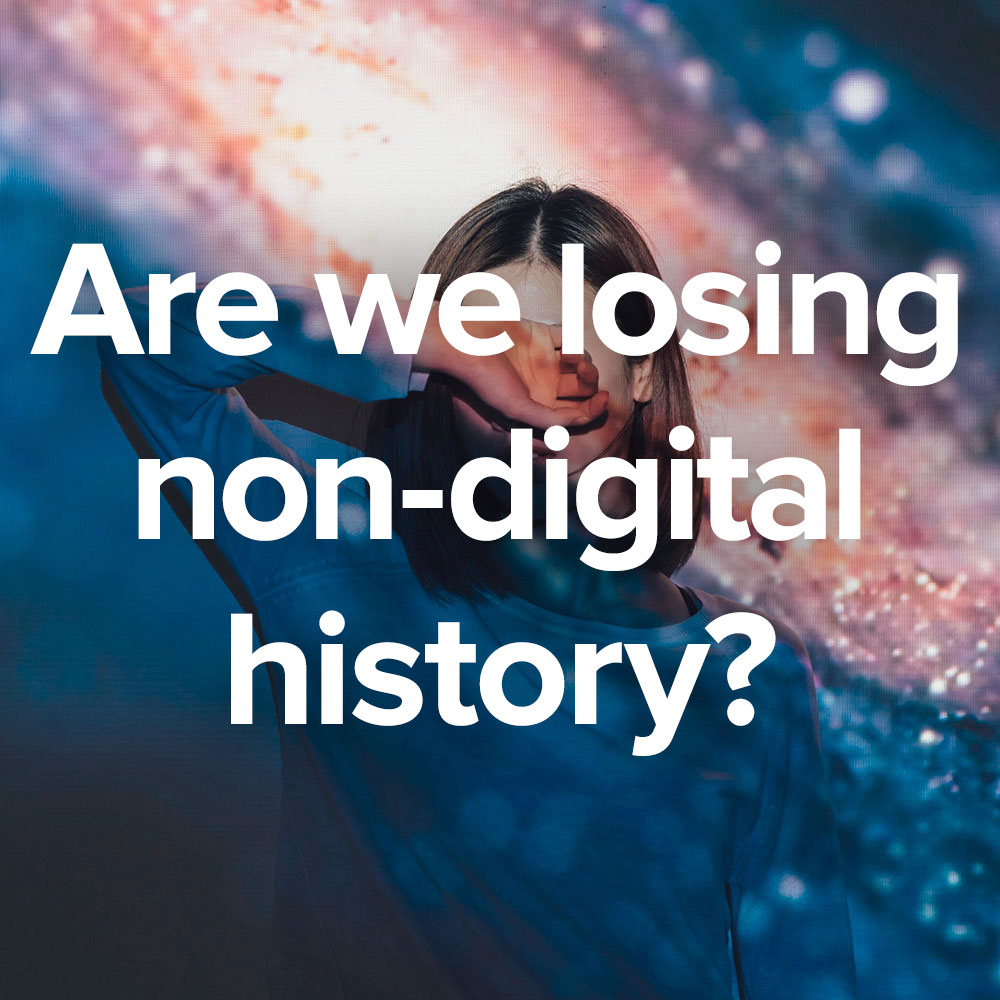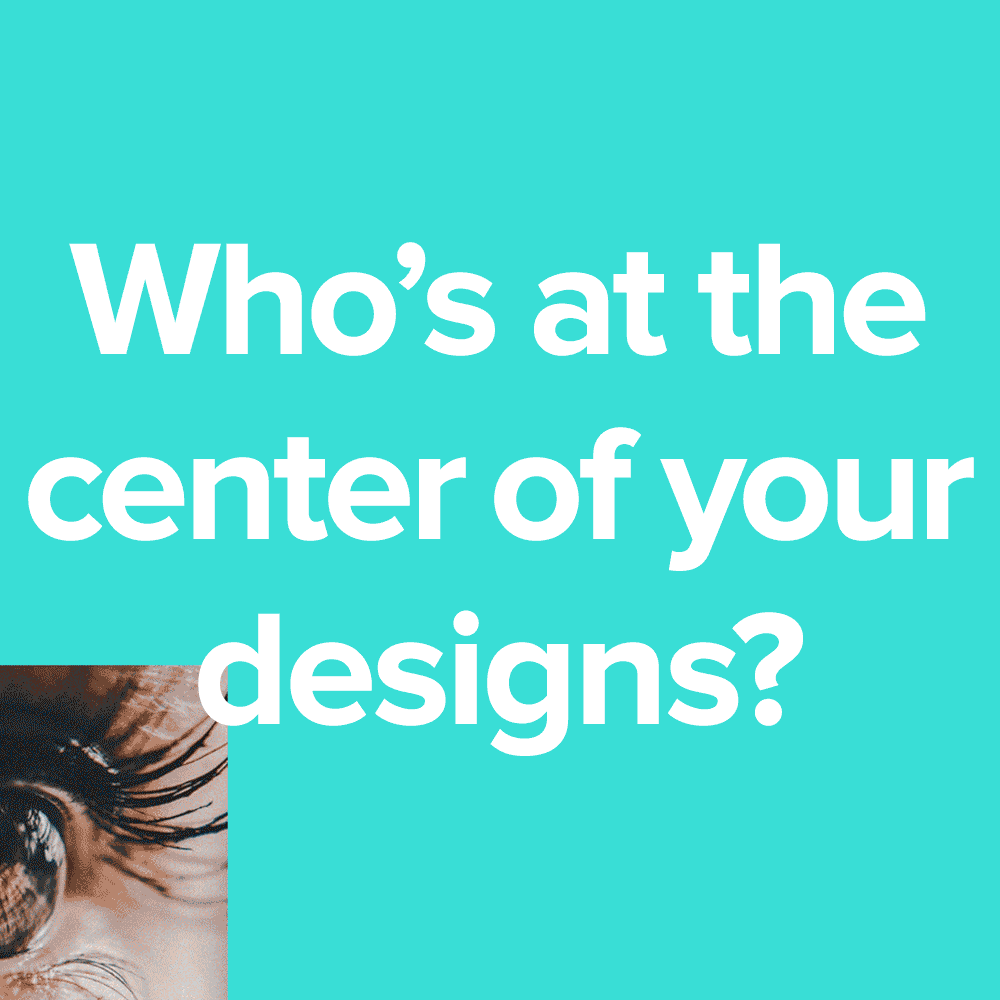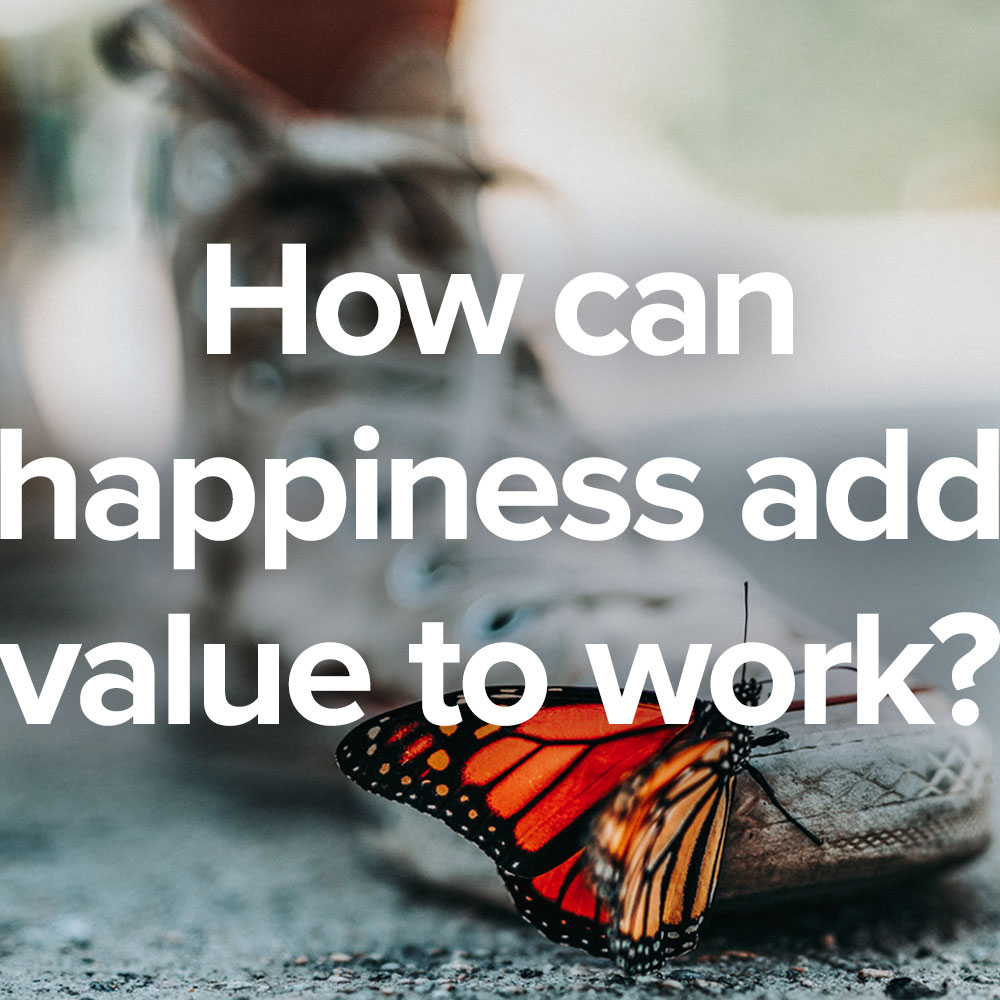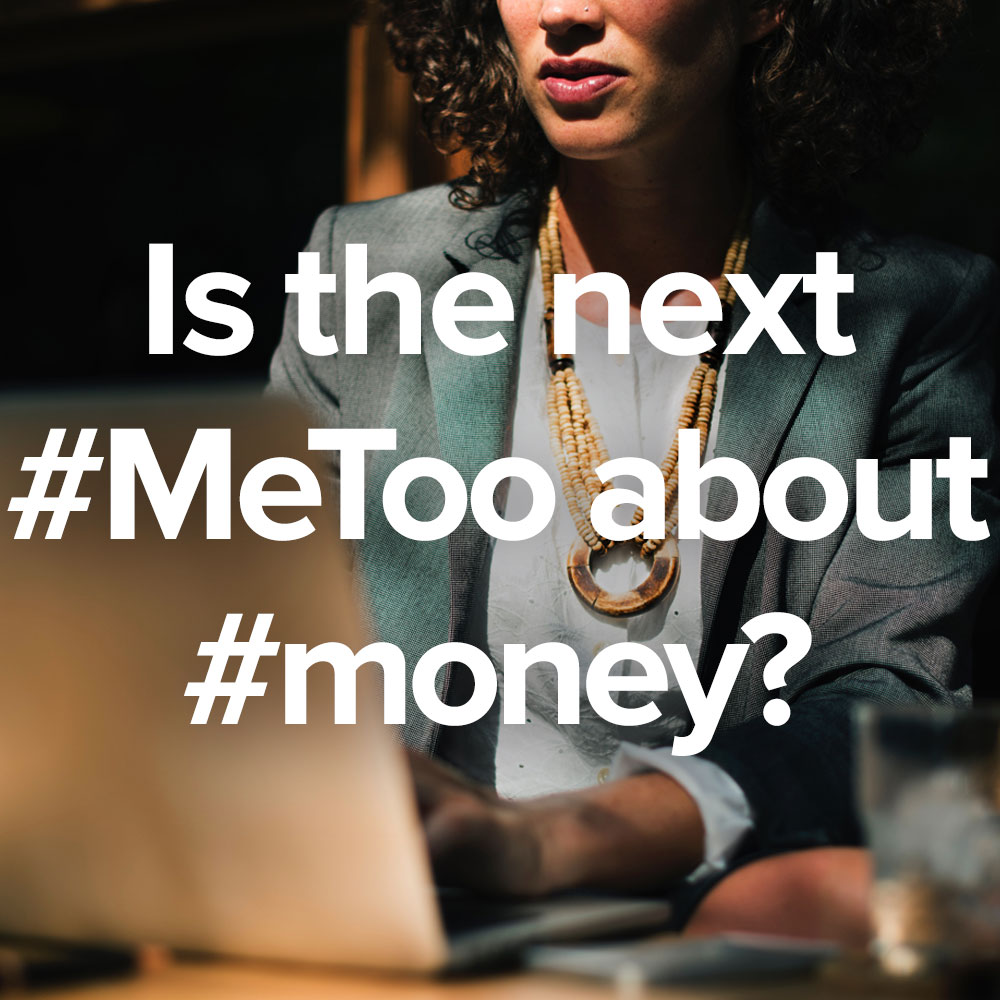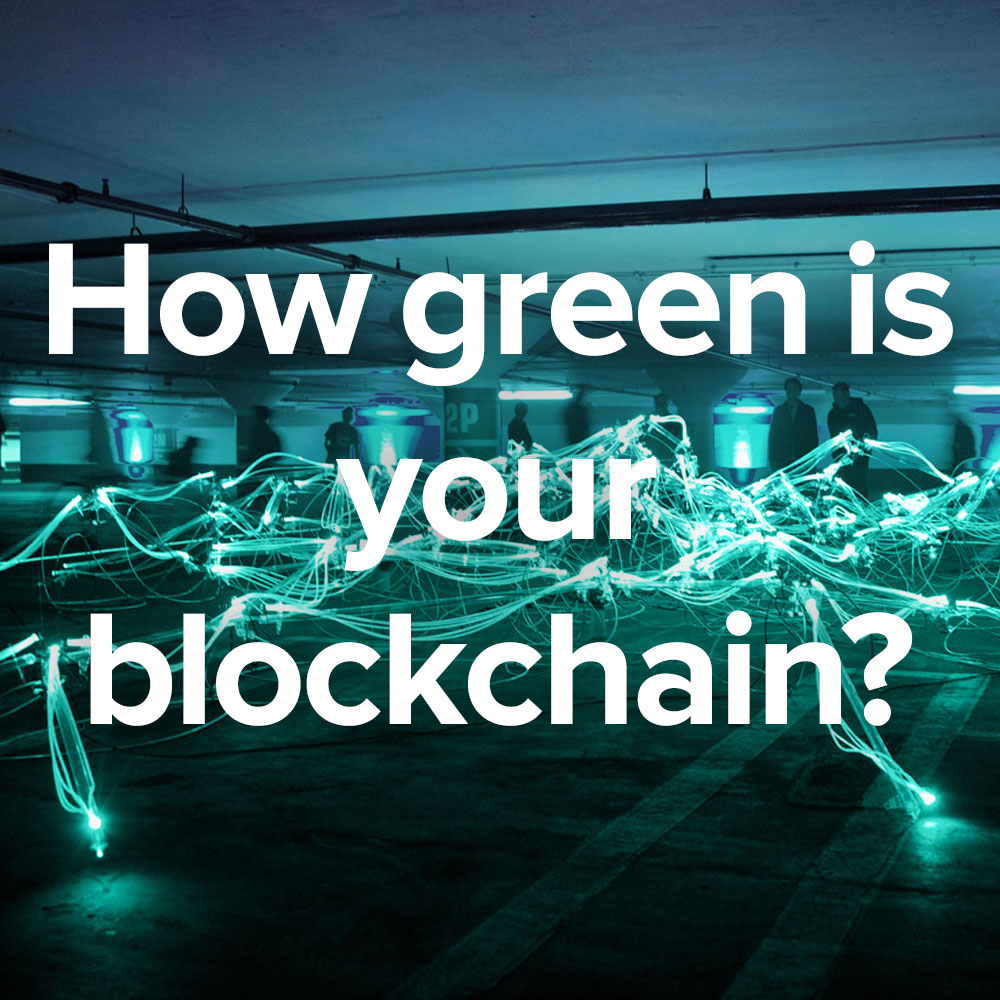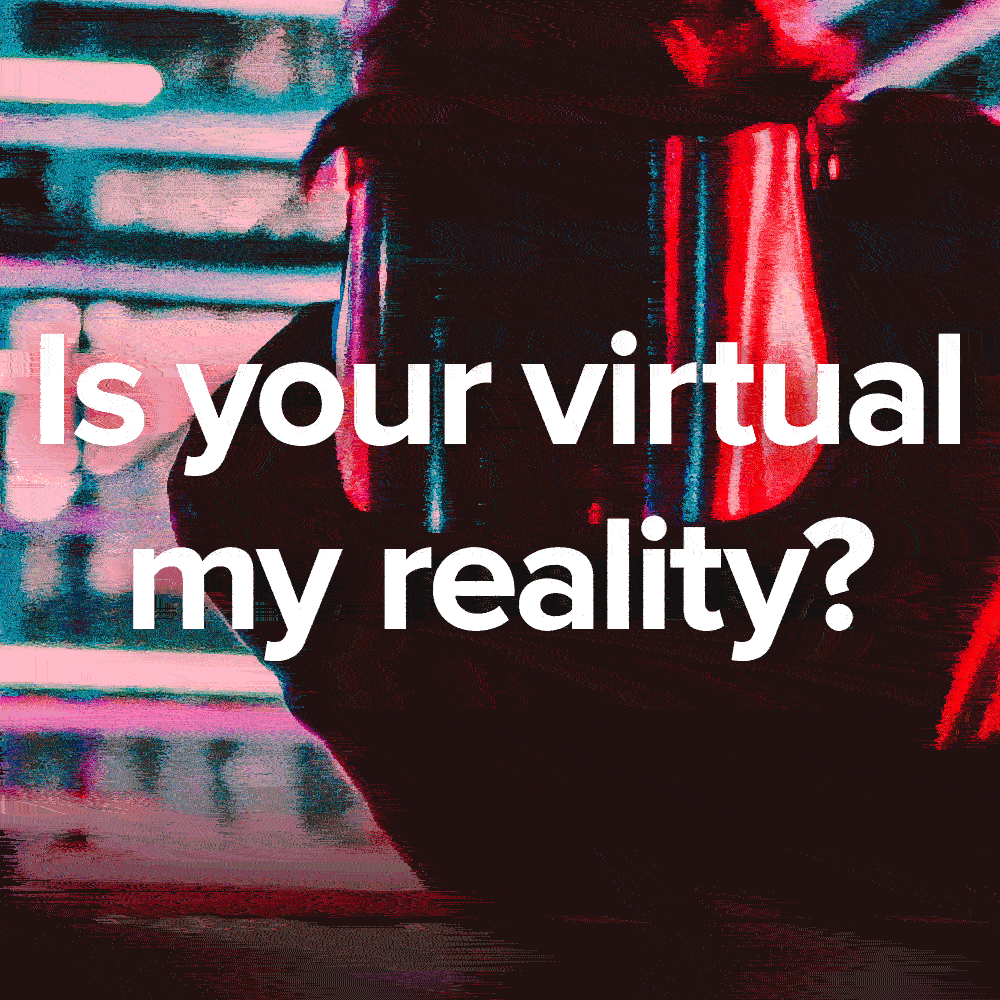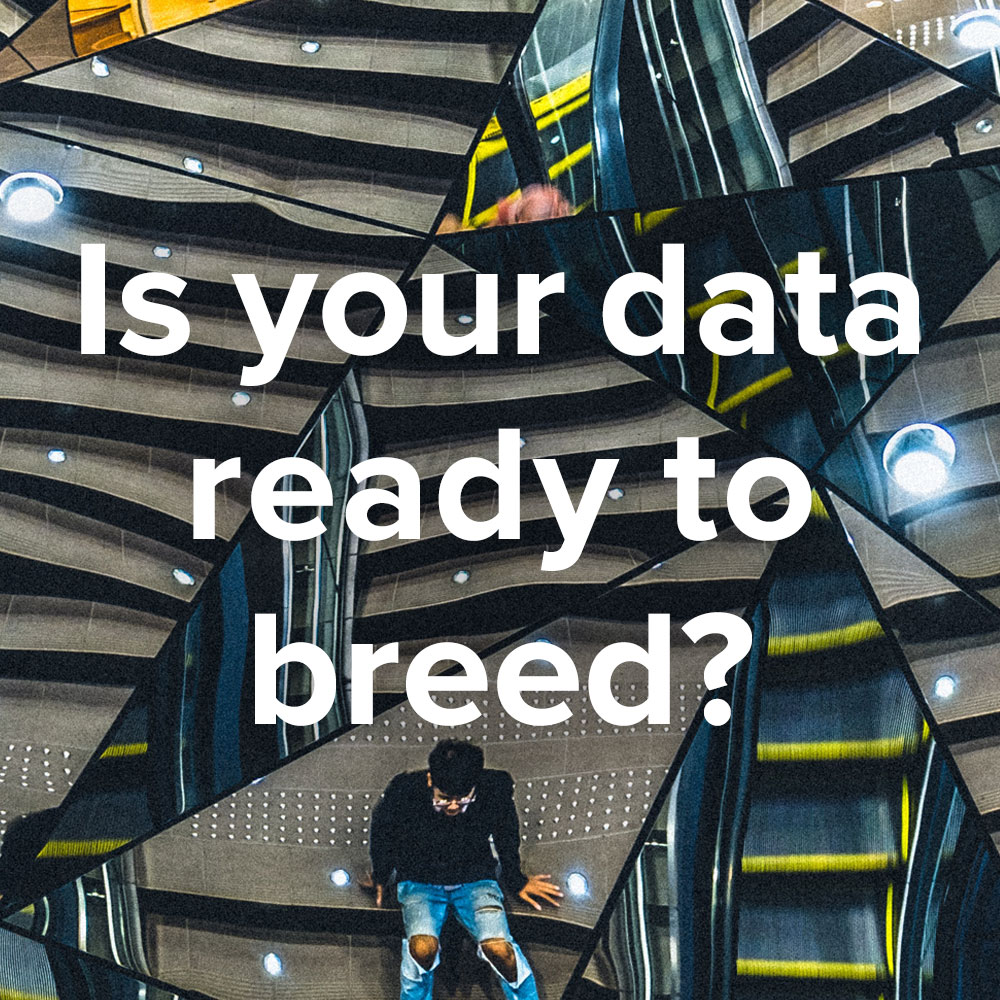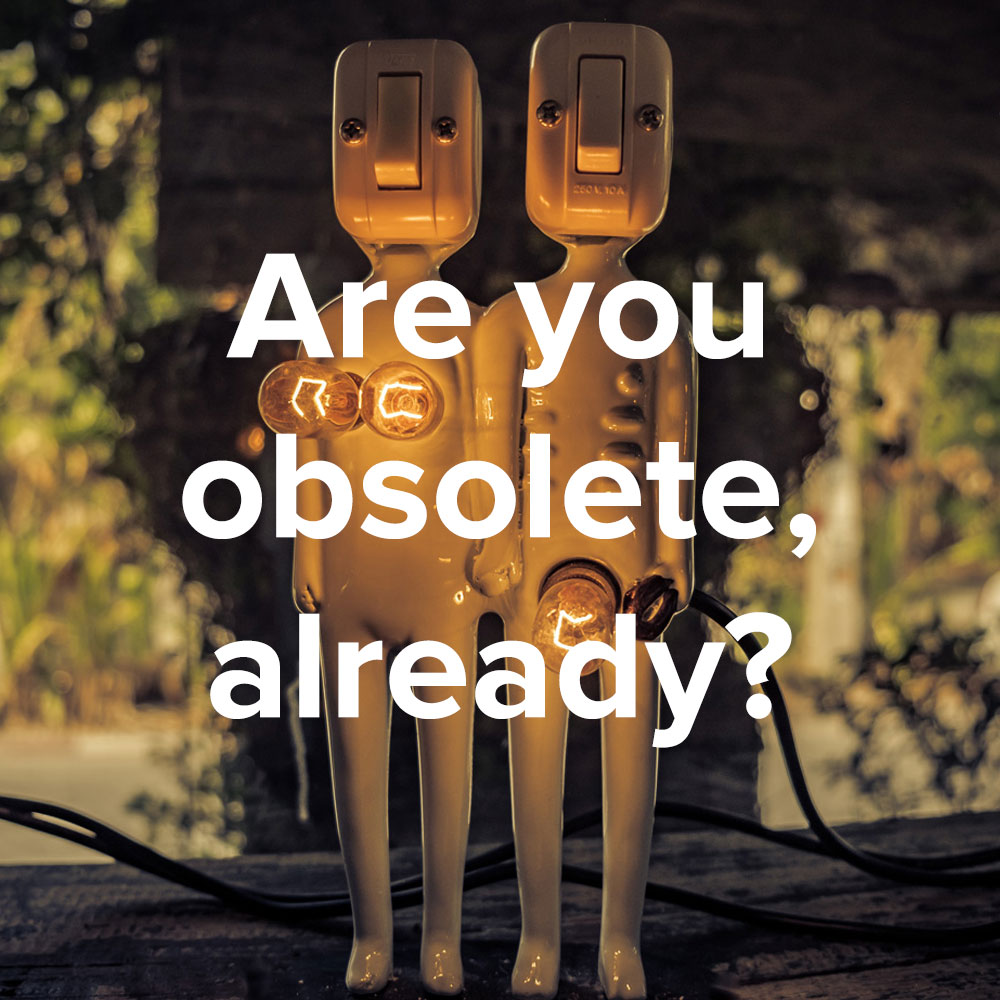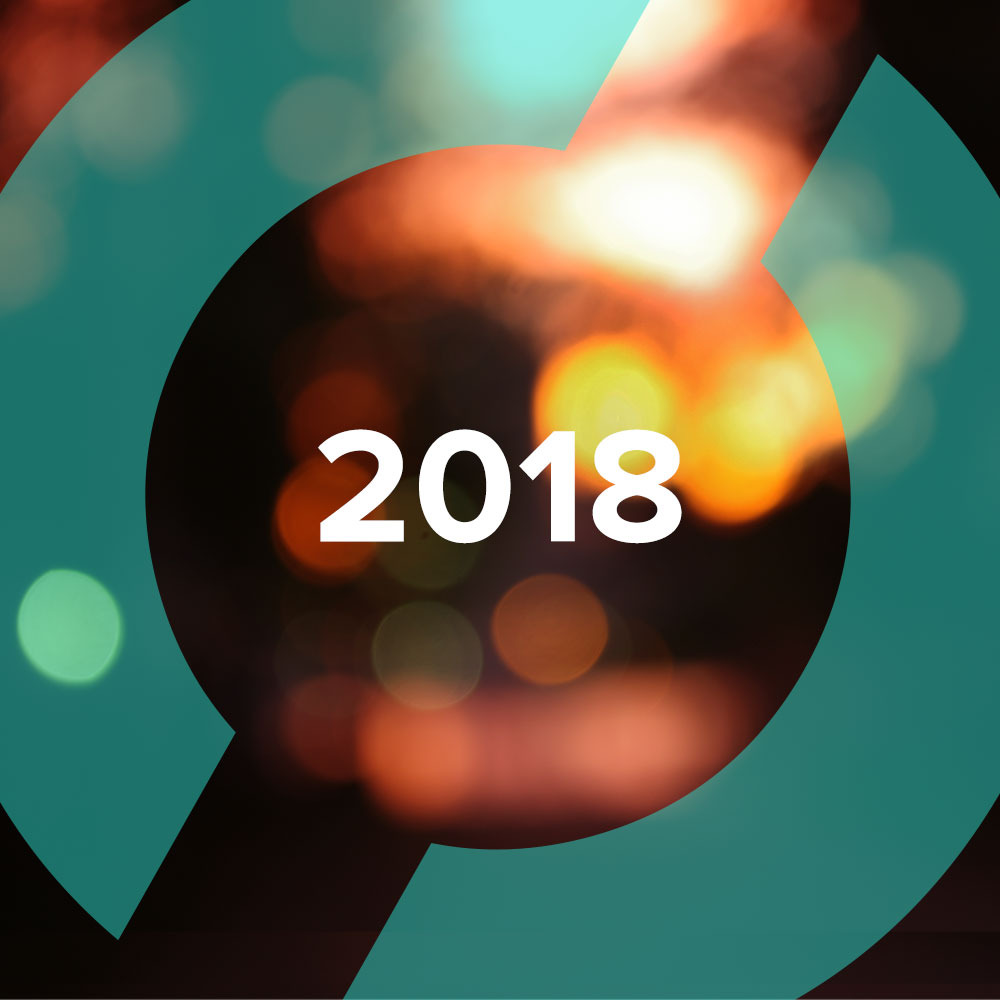“_________”
Tea on Radical Transformation.
There has never been a time when there is not someone who is actually going through radical transformation from believing in the future to wishing it were the past. We know that that is a curve that every single human seems to travel.
— Tea Uglow
Creative Director at Google Creative Lab APAC
— Once upon a time in America, there was an advertisement that soared far higher, intellectually, than it was ever meant to. At least with me. The brand? Taco Bell. I’d never even stepped foot in a Taco Bell (liar), but there it was, calling to me, promoting the 79-cent value menu. “Change.Is.Good.” I mean, I get what they were saying: You can’t grow if you're not willing to change. Indisputably. Almost tautologically. But this is big stuff. It’s kinda scary; how you handle change, whether you run from it or seek it out, the extent to which you embrace it, will, to a large degree, determine the course of your life. It’s your journey, n’est-ce pas? That's a lot on anyone’s plate.
We first met Tea Uglow at the Cannes Lions International Festival of Creativity, during our ‘Is OUT(side) the new IN?’ panel, a collaboration on diversity, inclusion and female empowerment that we dubbed Google + She Says + C/BY/C = Rare (visit the event page). Tea is the creative director for Google’s Creative Lab in Sydney, Australia, and in that role, she thinks deeply about the nexus of technology and culture. She knows a thing or two about change—radical transformation—not just on a professional level but very much so on a personal one. I get the sense that they go together, her personal experiences informing her vocational view of the world. And while she is very clearly a profound thinker, radical transformation doesn’t seem to come for her as primarily an intellectual exercise, but more so as a function of great emotion, of tumult. Perhaps not always welcome, but always accepted. In a world fast moving toward Artificial Intelligence, that makes her human.
Tea, you’ve developed some, well, radical thoughts about radical transformation. I gather they are born of experience?
Tea — There have been moments for me that you would call radical, at least from an external perspective. Four, in fact. The first one was with a neurological condition called Prosopagnosia, or face blindness. There is a slight impairment in the part of your brain that processes facial recognition. I don’t forget people, I just don’t recognize them, which causes all sorts of hilarity, and if you grow up with it as a developmental condition, then you think that’s normal. And it takes a long time to understand that’s not actually how the world perceives things.
How do you deal with the condition?
You find that there are different ways of approaching it. One is just not to engage in society, and the other is to approach everybody as if they are a very good friend. So, I tend to stick to the latter. We get there in the end.
That’s awesome.
It’s been a positive strategy for me, and it also leads to comedic things like chatting up ex-girlfriends or not recognizing family members.
Speaking of girlfriends, and boyfriends...
Yes, the second quite-radical realization was coming out as trans. The face-blindness diagnosis was like a day/night moment where you literally had to revisit your whole life and go, “Oh, right!” But that prepared me, in a certain way, for understanding that I was trans. Again, I knew. I had known since I was three, because I thought there was a switch-over day when little boys became little girls. I knew because that’s what I always wanted, and I knew it wasn’t ever going to happen and it was not okay to talk about that.
“My moments of radical transformation have been massively enlightening. Invariably, they come around to a new understanding of the structure of society, or family structure, or Western values, or the things that we are taught.”
So coming out trans was that extraordinary moment of having managed to not know something for a long time and then figuring it out. I needed to revisit my whole life. For many people, it looks like a moment of radical transformation, but in many ways there are light-bulb moments along the way. It’s just the time compression in which you experience it that feels radical.
The third kind of profound transformation for me has been understanding my mental health challenges. I have a dissociative disorder. A dissociative identity disorder. It’s very challenging.
So is this like a multiple-personality situation?
Multi-personality disorder was deprecated as a term about 20 years ago. Now we call it dissociative identity disorder.
I apologize...
No, that’s all right, because no one knows. That’s one of the reasons that I am beginning to spend time talking about that, because there is no awareness of that condition. It’s a known thing but only in terms of the drama in it. Whereas in fact, it is more nuanced and more complex, more devastating and more subtle, in many ways. In that you can lead a life, as I did, for 12 years as ‘Tom,’ and feel actually very comfortable in that role, in that life, that front. That person was perfectly sincere and honest and real but because of the way my brain grew, as a small child, it has developed an ability to move between different realities. For many neuro-diverse people, it is very challenging.
And the last one is, this amusing thing of growing up, thinking I was gay and realizing I was straight, and then thinking I was the other kind of straight and finally thinking I was gay again but the other kind of gay—and then actually deciding this is a really stupid thing to think about at all.
These aspects of your life might have stopped someone else in their tracks, but you seem to have grown from them and through them.
My moments of radical transformation have been massively enlightening. Invariably, they come around to a new understanding of the structure of society, or family structure, or Western values, or the things that we are taught.
Suggesting that truth is ultimately personal? And experiential?
Well, for me, truth got very, very wobbly in my 30s. I grew up in the U.K., in an era when we had a piece of legislation called Section 28, which made it illegal for schools and actually government organizations to discuss or promote homosexuality or other LGBTQ issues. In retrospect, of course I knew I was bisexual, but I didn’t know then that I was bisexual because I didn’t know what that meant. I didn’t understand myself as being part of that community. I didn’t even understand myself as being part of that community when I was sleeping with boys and with girls, that still didn’t occur to me. The boy part just felt like something I shouldn’t be doing, like it was wrong. And I didn’t tell anyone. And I certainly didn’t tell anyone that in my mind, everything would be better if I were a girl. I didn’t tell a soul in the world until my 30s. Looking back on it now, that seems absolutely incredible, but at the time, it was totally credible because it was not safe for me to tell anyone, it was literally not safe. To begin with, in the initial stages I didn't have the language, and in the later stages, I had too much to lose.
Are there radical transformations emerging around sexuality?
Indeed. I love talking to the next generation about issues around monogamy as opposed to the ethics of non-monogamy and why we think monogamy is a good thing. Monogamy is much more about ownership, which is patriarchal. It’s much more about the idea of finite love. Anyone who has children knows, you love all your children. So finite love is not something which is a real thing, it’s an imagined thing.
And also that notion that there is one person, for better or worse, for the rest of your life, and that’s how you ought to live your life. When we all know that’s not true. It comes back down to behavioral psychology and neurobiology and the fact that as a species, we are a mix between monogamous supporters, like some birds that have a mate for life, and competitive species, where we have alpha and beta males and all the trademarks of a competitive species. We might not be like most primates, but we are also not like most birds. We are an awkward mix in a neurobiological way.
These complicated things are a hindrance to our development as a species at the moment. We would prefer things to be simple.
“What is curious is the more that we learn, the more we realize what we don’t know so the less simple it gets. The smarter we get, the less simple things become. It would be really helpful if we could get on board with that. But we can’t.”
Oh, yeah. We want it simple, and we don’t want change.
Exactly. What is curious is the more that we learn, the more we realize what we don’t know so the less simple it gets. The smarter we get, the less simple things become. It would be really helpful if we could get on board with that. But we can’t. We are actually going the other way, we want things to be dumber and dumber and dumber, and simpler and simpler and simpler. As a species, we want to preserve energy, so it makes complete sense that we wouldn’t want to think. It makes actual biological sense, not to think about things, because you want to preserve calories.
This need for simplification goes hand in hand with a reluctance to change. In fact, since we are talking about radical transformation, I am not sure whether the key word there is “radical” or “transformation”; you can’t even have the radical without the transformation to begin with, and that is something that people fear and don’t necessarily embrace. I know there are plenty of people who will go, “Oh, I love change.” No, you don’t. You think you do, but you don’t. Most people struggle with it. Sounds like you’ve struggled with it...
It’s a natural problem.
“It’s much more about realizing that technology can change the way we understand ourselves. Because that’s how we evolve.”
It’s a natural thing. In your job at Google, are you a conduit for radical transformation in that job, for your clients?
No. What we do is explore ideas. What I want to explore are structures, and how if you pick apart at the structure using technology, you can understand why people see the world the way they see it. It’s much more about realizing that technology can change the way we understand ourselves. Because that’s how we evolve. There has never been a time when young children are not looking forward to the future and think that new inventions and things are exciting. There has never been a time when older people do not wish that we could return to an earlier time when things were simpler and they understood what was happening in the world. Which means that also, there has never been a time when there is not someone who is actually going through radical transformation, from believing in the future to wishing it were the past. We know that that is a curve that every single human seems to travel.
Let’s talk about the future. What type of radical changes are there on the horizon?
There are obvious things. We have a very interesting attitude towards Artificial Intelligence. AI fits into a scary trope but actually, it’s a huge, wide-ranging thing. There are aspects of machine learning that are challenging and scary, but there are aspects of machine learning that have been around for 20 years that we use every day in our phones and that we think are just completely normal. It's very likely that the things that we currently find to be challenging and scary, within another 20 years, will seem completely normal to us and absolutely standard. This notion that there is an “end-of-days moment” with AI is frustrating to me, because there isn’t. I am not a fan of notions of singularities. We are transforming slowly. We are evolving into a society that is more reliant on allowing machines to do heavy lifting, which gets us back to the thing about thinking. What I’m interested from a creative perspective is how we allow humans the tools that assist us in creativity.
Such as?
We have biros, we have calculators, we have spell checks, we have word processors, we have a million tools that help and aid us in our creativity. We look back on them as benign things and look forward with fear. I love this idea between anxiety and depression. Depression is not being able to deal with your past and anxiety is not being able to deal with your future. That is what we bring into our daily lives and when we talk about being in the moment, and being present, it’s basically because it’s the safest place for us. It's right now, and nothing bad is happening, so we’re okay.
The work that I’m doing, that I’m most interested in, is not very practical. It’s about Augmented Reality or ARCore [a Google software-development kit] and putting information into space in ways that are not about holding a screen. I am very big on how much we listen to audio. We hear noise. And in order to ignore the noise, you’ve got to ignore the people in the corridor, to ignore the camera, to ignore the call on the screen, ignore the air conditioning; I have to hear all of those things and then discard that information. I can’t not hear things. Your brain has to go through a process of hearing, processing and discarding. I don’t understand when people say, “Oh, I didn’t hear you.” Yes, you did hear me, you processed it and decided this is not relevant to pass onto the rest of your cortex and then you discarded that information.
But your personal radical transformations do affect your interests at work, yes?
All of my work looks at how I see the world, which is this multi-dimensional, multi-perspective thing because of my personal mental health. I see things from lots of perspectives because I have lots of perspectives. I want the rest of the world to understand things from that. All of these technologies bind us. We have this idea of a linear technology like film or video or a book which starts on page 1 and goes to page 273. Or a song which starts at the beginning and goes to the end, or a story. Or this interview, which began and will finish. The digital world allows for a much more real sense of theater, like following the theater of the American political system at the moment. It is receiving pieces of information constantly, from remarkably different sources. Some of which contradict, some of which overlap. There is no linearity to it at all.
I think we will look to a future culture that is more capable of acknowledging that one-way broadcast media creates a flat view of reality; understanding the only reason you haven’t told stories a certain way is because our prior technology relied on it being told via a piece of film or a book which was bound on one side. If that is your view of the reality and because of the way our cultural infrastructure exists, that becomes a dominant view. It becomes a simpler interpretation.
“The digital world allows for a much more real sense of theater, like following the theater of the American political system at the moment. It is receiving pieces of information constantly, from remarkably different sources. Some of which contradict, some of which overlap. There is no linearity to it at all.”
Let’s talk for a sec not just about transformation, but about transformationists. Greta Thunberg and climate change. What can we learn from her about transformation and social movements?
This is really fascinating. Greta is the hero that we need. There are many climate-change activists. There are many in the States. It is a very rich, deep movement that has been going for decades, from the ‘70s. We have known this information. This is not new information. What’s new is that we have a perfectly formed figurehead through which we can all understand our own journey and our own struggle. The fact that she has done it all on her own is perfect as it reminds us all that we need to do this on our own, because we are not going to be supported by the government that we elect.
Greta is the perfect articulation of the argument. Yet her articulation of the argument is still getting lost. The banners that people carried on their marches seem to be made more for Instagram than for politicians. They are often talking about their anxiety. I will start a talk by saying, “I would like to apologize on behalf of my generation, because when I was your age, I was furious with the generation above me, that they hadn’t done anything.” And my main message is: don’t let yourself be in my position. Don’t let yourself, in 20 years, be apologizing to the kids who were being born in 2020.
Will Greta succeed? Will there be radical transformation concerning climate change? What would it even look like?
I have not seen anyone saying, “Right, these are the things that we need to do.” Whether that is flights that need to be rationed. Whether energy efficiency needs to be modeled. Whether we are going to build this on an economic system. What radical things need to occur. Whether meat should be taxed out of existence, like tobacco, which I think would be quite a sensible idea. Whose industries are going to go out of business, in order to save the planet? I understand that will need to happen. To prevent climate change, we have to change.
Radical transformation is as personal as it is societal.
Change is more than saying, “I want change.” Change is transformative practice.
Thank you Tea. It was great meeting up with you again during Advertising Week NY — have a safe flight back to Sydney.

